Covid-19 travel safety and information
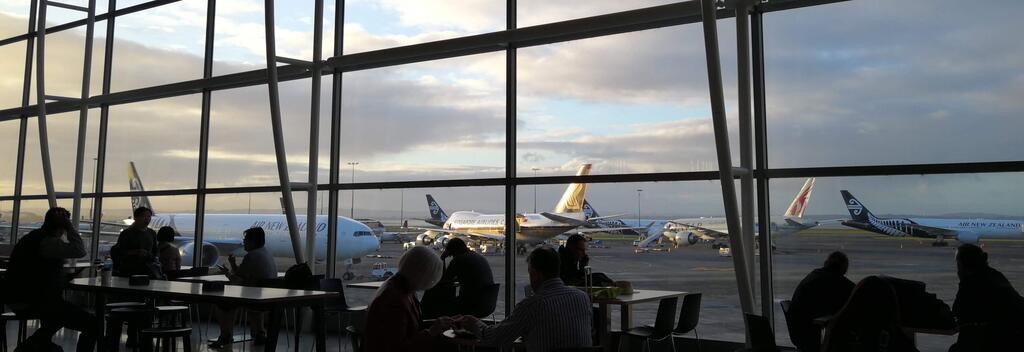
Know what to expect while travelling and follow some simple guidelines to stay safe in New Zealand.
On this page, you'll find helpful information on what you need to know:

Before travelling to New Zealand
- When in New Zealand
Leaving New Zealand
1. check your eligibility.
Before planning your travel to New Zealand, make sure you are eligible for travel, meet the visa requirements and have taken the right steps.
Everyone entering New Zealand needs to complete a New Zealand Traveller Declaration (NZTD) (opens in new window) including babies and children. It’s free and you can complete it on the NZTD website or by downloading the NZTD app ahead of your travel.
2. New Zealand’s vaccination requirements
COVID-19 vaccination and testing requirements for all travellers arriving in the country, including air crew, are no longer required.
However, all travellers are strongly encouraged to remain up to date with their vaccinations before travelling to New Zealand. Vaccination remains a significant tool for preventing infection, reducing COVID-19 symptoms and severe illness.
3. Pre-departure test
To enter New Zealand, travellers no longer need to get a pre-departure test.
4. Other things to consider before leaving
For peace of mind during your trip in New Zealand, you may also want to consider medical and travel insurance.
When you're in New Zealand
Once you arrive in new zealand.
Antigen tests
Travellers entering New Zealand do not need pre-departure tests or proof of COVID-19 vaccination to enter New Zealand. Check with your travel provider as they may still require proof of vaccination. If you have COVID-19 symptoms when you arrive in New Zealand, it is recommended to take a rapid antigen test (RATs). COVID-19 tests are free and widely available in New Zealand. Find more information on how to get a free RAT or PCR test (opens in new window) . Find more information on taking your test (opens in new window) .
COVID-19 safety practices in place
With COVID-19 case numbers falling, a highly vaccinated population, and increased access to antiviral medicines to treat COVID-19, New Zealand has removed most COVID-19 restrictions. It is still recommended to practice healthy habits when travelling around New Zealand.
Practice healthy habits
- While travelling around New Zealand, you should try to physically distance yourself in airports or busy transport hubs.
- Wearing a face mask is no longer required, although masks are still encouraged in some places such as hospitals.
- Find further information on face mask requirements (opens in new window) here.
What to do if you develop symptoms
- Find a COVID-19 testing centre (opens in new window) in your current location
- Order a rapid antigen tests (RATs) home testing kit
- Isolate for seven days. Find more information on self-isolation requirements (opens in new window) .
- Find more information on what to do if you test positive while travelling (opens in new window) .
Helpful links
- New Zealand emergency information and numbers
- List of public hospitals in New Zealand (opens in new window)
- Testing centre locations (opens in new window) across New Zealand
Check entry requirements
The country you are travelling to may have entry requirements in place. Be sure to check the requirements of the country you are travelling to.
- the official website of the country you wish to enter
- that country’s diplomatic representative in New Zealand
- More information if you require a pre-departure test before leaving (opens in new window) New Zealand
- List of testing centre locations (opens in new window) in New Zealand
More information on travelling to NZ
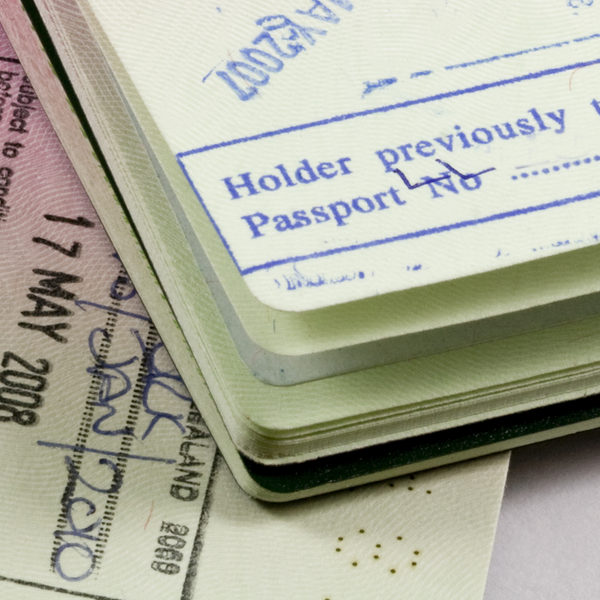
Visas and entry requirements long-arrow-right
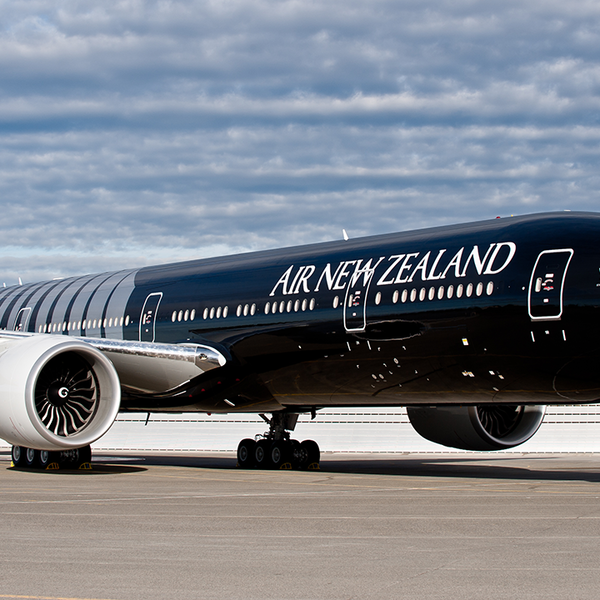
Flights To New Zealand long-arrow-right
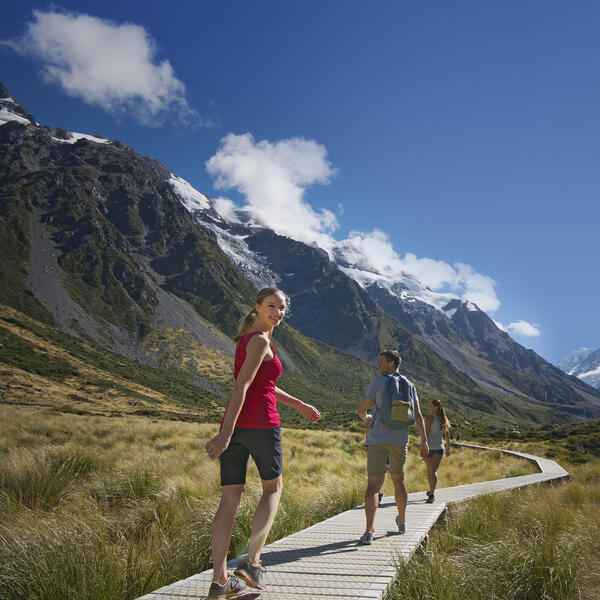
Travel agents and agencies long-arrow-right
You are using an outdated browser. Upgrade your browser today or install Google Chrome Frame to better experience this site.
New Zealand Traveler View
Travel health notices, vaccines and medicines, non-vaccine-preventable diseases, stay healthy and safe.
- Packing List
After Your Trip
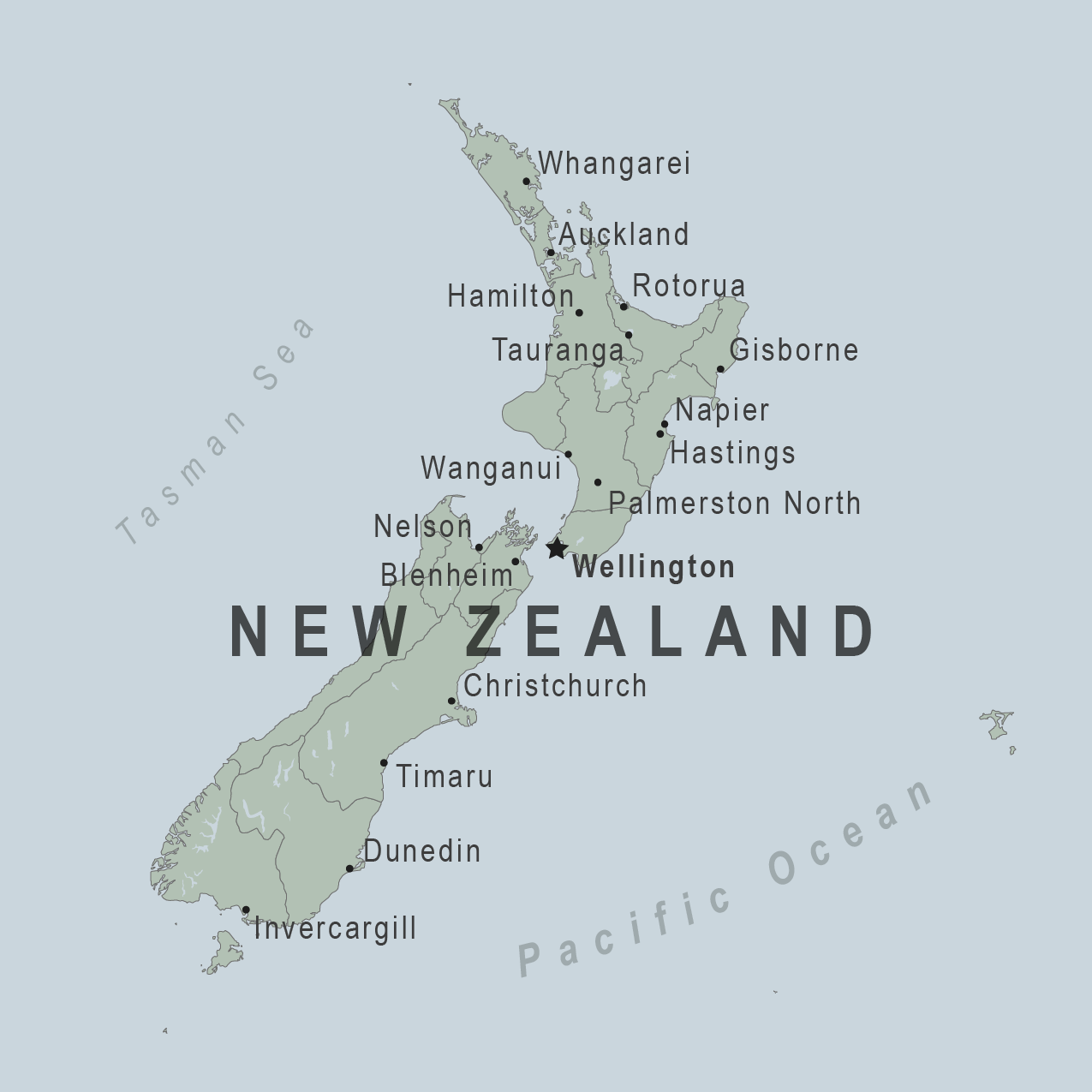
There are no notices currently in effect for New Zealand.
⇧ Top
Check the vaccines and medicines list and visit your doctor at least a month before your trip to get vaccines or medicines you may need. If you or your doctor need help finding a location that provides certain vaccines or medicines, visit the Find a Clinic page.
Routine vaccines
Recommendations.
Make sure you are up-to-date on all routine vaccines before every trip. Some of these vaccines include
- Chickenpox (Varicella)
- Diphtheria-Tetanus-Pertussis
- Flu (influenza)
- Measles-Mumps-Rubella (MMR)
Immunization schedules
All eligible travelers should be up to date with their COVID-19 vaccines. Please see Your COVID-19 Vaccination for more information.
COVID-19 vaccine
Hepatitis A
Consider hepatitis A vaccination for most travelers. It is recommended for travelers who will be doing higher risk activities, such as visiting smaller cities, villages, or rural areas where a traveler might get infected through food or water. It is recommended for travelers who plan on eating street food.
Hepatitis A - CDC Yellow Book
Dosing info - Hep A
Hepatitis B
Recommended for unvaccinated travelers younger than 60 years old traveling to New Zealand. Unvaccinated travelers 60 years and older may get vaccinated before traveling to New Zealand.
Hepatitis B - CDC Yellow Book
Dosing info - Hep B
Cases of measles are on the rise worldwide. Travelers are at risk of measles if they have not been fully vaccinated at least two weeks prior to departure, or have not had measles in the past, and travel internationally to areas where measles is spreading.
All international travelers should be fully vaccinated against measles with the measles-mumps-rubella (MMR) vaccine, including an early dose for infants 6–11 months, according to CDC’s measles vaccination recommendations for international travel .
Measles (Rubeola) - CDC Yellow Book
New Zealand is free of dog rabies. However, rabies may still be present in wildlife species, particularly bats. CDC recommends rabies vaccination before travel only for people working directly with wildlife. These people may include veterinarians, animal handlers, field biologists, or laboratory workers working with specimens from mammalian species.
Rabies - CDC Yellow Book
Avoid contaminated water
Leptospirosis
How most people get sick (most common modes of transmission)
- Touching urine or other body fluids from an animal infected with leptospirosis
- Swimming or wading in urine-contaminated fresh water, or contact with urine-contaminated mud
- Drinking water or eating food contaminated with animal urine
- Avoid contaminated water and soil
Clinical Guidance
Airborne & droplet.
- Breathing in air or accidentally eating food contaminated with the urine, droppings, or saliva of infected rodents
- Bite from an infected rodent
- Less commonly, being around someone sick with hantavirus (only occurs with Andes virus)
- Avoid rodents and areas where they live
- Avoid sick people
Tuberculosis (TB)
- Breathe in TB bacteria that is in the air from an infected and contagious person coughing, speaking, or singing.
Learn actions you can take to stay healthy and safe on your trip. Vaccines cannot protect you from many diseases in New Zealand, so your behaviors are important.
Eat and drink safely
Food and water standards around the world vary based on the destination. Standards may also differ within a country and risk may change depending on activity type (e.g., hiking versus business trip). You can learn more about safe food and drink choices when traveling by accessing the resources below.
- Choose Safe Food and Drinks When Traveling
- Water Treatment Options When Hiking, Camping or Traveling
- Global Water, Sanitation and Hygiene | Healthy Water
- Avoid Contaminated Water During Travel
You can also visit the Department of State Country Information Pages for additional information about food and water safety.
Prevent bug bites
Although New Zealand is an industrialized country, bug bites here can still spread diseases. Just as you would in the United States, try to avoid bug bites while spending time outside or in wooded areas.
What can I do to prevent bug bites?
- Cover exposed skin by wearing long-sleeved shirts, long pants, and hats.
- Use an appropriate insect repellent (see below).
- Consider using permethrin-treated clothing and gear if spending a lot of time outside. Do not use permethrin directly on skin.
What type of insect repellent should I use?
- FOR PROTECTION AGAINST TICKS AND MOSQUITOES: Use a repellent that contains 20% or more DEET for protection that lasts up to several hours.
- Picaridin (also known as KBR 3023, Bayrepel, and icaridin)
- Oil of lemon eucalyptus (OLE) or para-menthane-diol (PMD)
- 2-undecanone
- Always use insect repellent as directed.
What should I do if I am bitten by bugs?
- Avoid scratching bug bites, and apply hydrocortisone cream or calamine lotion to reduce the itching.
- Check your entire body for ticks after outdoor activity. Be sure to remove ticks properly.
What can I do to avoid bed bugs?
Although bed bugs do not carry disease, they are an annoyance. See our information page about avoiding bug bites for some easy tips to avoid them. For more information on bed bugs, see Bed Bugs .
For more detailed information on avoiding bug bites, see Avoid Bug Bites .
Stay safe outdoors
If your travel plans in New Zealand include outdoor activities, take these steps to stay safe and healthy during your trip:
- Stay alert to changing weather conditions and adjust your plans if conditions become unsafe.
- Prepare for activities by wearing the right clothes and packing protective items, such as bug spray, sunscreen, and a basic first aid kit.
- Consider learning basic first aid and CPR before travel. Bring a travel health kit with items appropriate for your activities.
- If you are outside for many hours in the heat, eat salty snacks and drink water to stay hydrated and replace salt lost through sweating.
- Protect yourself from UV radiation : use sunscreen with an SPF of at least 15, wear protective clothing, and seek shade during the hottest time of day (10 a.m.–4 p.m.).
- Be especially careful during summer months and at high elevation. Because sunlight reflects off snow, sand, and water, sun exposure may be increased during activities like skiing, swimming, and sailing.
- Very cold temperatures can be dangerous. Dress in layers and cover heads, hands, and feet properly if you are visiting a cold location.
Stay safe around water
- Swim only in designated swimming areas. Obey lifeguards and warning flags on beaches.
- Do not dive into shallow water.
- Avoid swallowing water when swimming. Untreated water can carry germs that make you sick.
- Practice safe boating—follow all boating safety laws, do not drink alcohol if you are driving a boat, and always wear a life jacket.
Keep away from animals
Most animals avoid people, but they may attack if they feel threatened, are protecting their young or territory, or if they are injured or ill. Animal bites and scratches can lead to serious diseases such as rabies.
Follow these tips to protect yourself:
- Do not touch or feed any animals you do not know.
- Do not allow animals to lick open wounds, and do not get animal saliva in your eyes or mouth.
- Avoid rodents and their urine and feces.
- Traveling pets should be supervised closely and not allowed to come in contact with local animals.
- If you wake in a room with a bat, seek medical care immediately. Bat bites may be hard to see.
All animals can pose a threat, but be extra careful around dogs, bats, monkeys, sea animals such as jellyfish, and snakes. If you are bitten or scratched by an animal, immediately:
- Wash the wound with soap and clean water.
- Go to a doctor right away.
- Tell your doctor about your injury when you get back to the United States.
Reduce your exposure to germs
Follow these tips to avoid getting sick or spreading illness to others while traveling:
- Wash your hands often, especially before eating.
- If soap and water aren’t available, clean hands with hand sanitizer (containing at least 60% alcohol).
- Don’t touch your eyes, nose, or mouth. If you need to touch your face, make sure your hands are clean.
- Cover your mouth and nose with a tissue or your sleeve (not your hands) when coughing or sneezing.
- Try to avoid contact with people who are sick.
- If you are sick, stay home or in your hotel room, unless you need medical care.
Avoid sharing body fluids
Diseases can be spread through body fluids, such as saliva, blood, vomit, and semen.
Protect yourself:
- Use latex condoms correctly.
- Do not inject drugs.
- Limit alcohol consumption. People take more risks when intoxicated.
- Do not share needles or any devices that can break the skin. That includes needles for tattoos, piercings, and acupuncture.
- If you receive medical or dental care, make sure the equipment is disinfected or sanitized.
Know how to get medical care while traveling
Plan for how you will get health care during your trip, should the need arise:
- Carry a list of local doctors and hospitals at your destination.
- Review your health insurance plan to determine what medical services it would cover during your trip. Consider purchasing travel health and medical evacuation insurance for things your regular insurance will not cover.
- Carry a card that identifies, in the local language, your blood type, chronic conditions or serious allergies, and the generic names of any medicines you take.
- Bring copies of your prescriptions for medicine and for eye glasses and contact lenses.
- Some prescription drugs may be illegal in other countries. Call New Zealand’s embassy to verify that all of your prescription(s) are legal to bring with you.
- Bring all the medicines (including over-the-counter medicines) you think you might need during your trip, including extra in case of travel delays. Ask your doctor to help you get prescriptions filled early if you need to.
Many foreign hospitals and clinics are accredited by the Joint Commission International. A list of accredited facilities is available at their website ( www.jointcommissioninternational.org ).
Select safe transportation
Motor vehicle crashes are the #1 killer of healthy US citizens in foreign countries.
Be smart when you are traveling on foot.
- Use sidewalks and marked crosswalks.
- Pay attention to the traffic around you, especially in crowded areas.
- Remember, people on foot do not always have the right of way in other countries.
Riding/Driving
Choose a safe vehicle.
- Choose official taxis or public transportation, such as trains and buses.
- Make sure there are seatbelts.
- Avoid overcrowded, overloaded, top-heavy buses and minivans.
- Avoid riding on motorcycles or motorbikes, especially motorbike taxis. (Many crashes are caused by inexperienced motorbike drivers.)
- Choose newer vehicles—they may have more safety features, such as airbags, and be more reliable.
- Choose larger vehicles, which may provide more protection in crashes.
Think about the driver.
- Do not drive after drinking alcohol or ride with someone who has been drinking.
- Consider hiring a licensed, trained driver familiar with the area.
- Arrange payment before departing.
Follow basic safety tips.
- Wear a seatbelt at all times.
- Sit in the back seat of cars and taxis.
- When on motorbikes or bicycles, always wear a helmet. (Bring a helmet from home, if needed.)
- Do not use a cell phone or text while driving (illegal in many countries).
- Travel during daylight hours only, especially in rural areas.
- If you choose to drive a vehicle in New Zealand, learn the local traffic laws and have the proper paperwork.
- Get any driving permits and insurance you may need. Get an International Driving Permit (IDP). Carry the IDP and a US-issued driver's license at all times.
- Check with your auto insurance policy's international coverage, and get more coverage if needed. Make sure you have liability insurance.
- Avoid using local, unscheduled aircraft.
- If possible, fly on larger planes (more than 30 seats); larger airplanes are more likely to have regular safety inspections.
- Try to schedule flights during daylight hours and in good weather.
Helpful Resources
Road Safety Overseas (Information from the US Department of State): Includes tips on driving in other countries, International Driving Permits, auto insurance, and other resources.
The Association for International Road Travel has country-specific Road Travel Reports available for most countries for a minimal fee.
Traffic flows on the left side of the road in New Zealand.
- Always pay close attention to the flow of traffic, especially when crossing the street.
- LOOK RIGHT for approaching traffic.
Maintain personal security
Use the same common sense traveling overseas that you would at home, and always stay alert and aware of your surroundings.
Before you leave
- Research your destination(s), including local laws, customs, and culture.
- Monitor travel advisories and alerts and read travel tips from the US Department of State.
- Enroll in the Smart Traveler Enrollment Program (STEP) .
- Leave a copy of your itinerary, contact information, credit cards, and passport with someone at home.
- Pack as light as possible, and leave at home any item you could not replace.
While at your destination(s)
- Carry contact information for the nearest US embassy or consulate .
- Carry a photocopy of your passport and entry stamp; leave the actual passport securely in your hotel.
- Follow all local laws and social customs.
- Do not wear expensive clothing or jewelry.
- Always keep hotel doors locked, and store valuables in secure areas.
- If possible, choose hotel rooms between the 2nd and 6th floors.
Healthy Travel Packing List
Use the Healthy Travel Packing List for New Zealand for a list of health-related items to consider packing for your trip. Talk to your doctor about which items are most important for you.
Why does CDC recommend packing these health-related items?
It’s best to be prepared to prevent and treat common illnesses and injuries. Some supplies and medicines may be difficult to find at your destination, may have different names, or may have different ingredients than what you normally use.
If you are not feeling well after your trip, you may need to see a doctor. If you need help finding a travel medicine specialist, see Find a Clinic . Be sure to tell your doctor about your travel, including where you went and what you did on your trip. Also tell your doctor if you were bitten or scratched by an animal while traveling.
For more information on what to do if you are sick after your trip, see Getting Sick after Travel .
Map Disclaimer - The boundaries and names shown and the designations used on maps do not imply the expression of any opinion whatsoever on the part of the Centers for Disease Control and Prevention concerning the legal status of any country, territory, city or area or of its authorities, or concerning the delimitation of its frontiers or boundaries. Approximate border lines for which there may not yet be full agreement are generally marked.
Other Destinations
If you need help finding travel information:
Message & data rates may apply. CDC Privacy Policy
File Formats Help:
- Adobe PDF file
- Microsoft PowerPoint file
- Microsoft Word file
- Microsoft Excel file
- Audio/Video file
- Apple Quicktime file
- RealPlayer file
- Zip Archive file
Exit Notification / Disclaimer Policy
- The Centers for Disease Control and Prevention (CDC) cannot attest to the accuracy of a non-federal website.
- Linking to a non-federal website does not constitute an endorsement by CDC or any of its employees of the sponsors or the information and products presented on the website.
- You will be subject to the destination website's privacy policy when you follow the link.
- CDC is not responsible for Section 508 compliance (accessibility) on other federal or private website.
- KAYAK for Business NEW
New Zealand Travel Restrictions
Traveler's COVID-19 vaccination status
Traveling from the United States to New Zealand
Open for vaccinated visitors
COVID-19 testing
Not required
Not required for vaccinated visitors
Restaurants
Not required in public spaces and enclosed environments.
New Zealand entry details and exceptions
Ready to travel, find flights to new zealand, find stays in new zealand, explore more countries on travel restrictions map, destinations you can travel to now, dominican republic, netherlands, philippines, puerto rico, switzerland, united arab emirates, united kingdom, know when to go.
Sign up for email alerts as countries begin to open - choose the destinations you're interested in so you're in the know.
Can I travel to New Zealand from the United States?
Most visitors from the United States, regardless of vaccination status, can enter New Zealand.
Can I travel to New Zealand if I am vaccinated?
Fully vaccinated visitors from the United States can enter New Zealand without restrictions.
Can I travel to New Zealand without being vaccinated?
Unvaccinated visitors from the United States can enter New Zealand without restrictions.
Do I need a COVID test to enter New Zealand?
Visitors from the United States are not required to present a negative COVID-19 PCR test or antigen result upon entering New Zealand.
Can I travel to New Zealand without quarantine?
Travelers from the United States are not required to quarantine.
Do I need to wear a mask in New Zealand?
Mask usage in New Zealand is not required in public spaces and enclosed environments.
Are the restaurants and bars open in New Zealand?
Restaurants in New Zealand are open. Bars in New Zealand are .
New Zealand Traveller Declaration Whakapuakanga Tangata Haere ki Aotearoa
The New Zealand Traveller Declaration collects travel, customs, immigration and biosecurity information. It aims to improve the safety and security of New Zealand. It is available for travellers arriving into New Zealand.
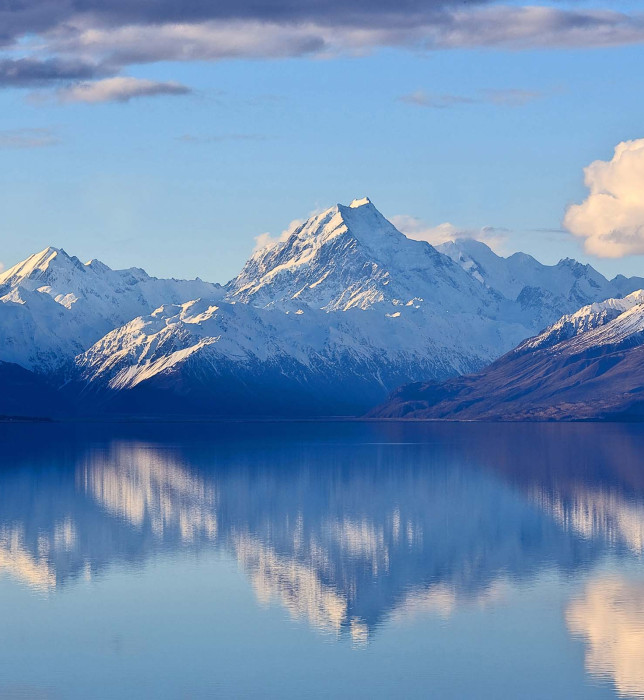
What you need to know
- Completing your declaration is free.
- Everyone entering New Zealand needs to submit a declaration.
- You can do it on the online form or the NZTD app, using your phone or computer.
- For air travellers, the earliest you can submit your declaration is 24 hours before you start your trip to New Zealand. It needs to be submitted by the time you reach passport control in New Zealand.
- For sea travellers, the earliest you can submit your declaration is 24 hours before departing the vessel’s last foreign port prior to arriving in New Zealand. It needs to be submitted by the time the vessel has berthed at its first port in New Zealand.
- Someone you trust can help you fill it in or do it on your behalf (with your permission).
- A declaration needs to be completed for each traveller, including babies and children.
- Your digital declaration is linked to your passport and is checked when you arrive at the eGate or by a border officer. There is no QR code issued and you don't need to print anything out.
- There is a paper declaration form available, for travellers who cannot complete it online.
Welcoming you to Aotearoa New Zealand
Kia ora, nau mai haere mai. Welcome to Aotearoa New Zealand. We want to help you understand what you need to do to travel here. Our home is precious – a taonga. Please help to keep our tangata and our whenua – our people and our land – safe. We ask everyone travelling to, or returning to New Zealand, to complete a New Zealand Traveller Declaration. You can do this on our website travellerdeclaration.govt.nz or by downloading the NZTD app. You’ll be asked some questions about your trip and what’s in your bags. Some items can’t be brought into New Zealand. If in doubt, declare it for inspection. Please answer the questions honestly, otherwise you could be fined. We look forward to welcoming you to Aotearoa New Zealand. Ka kite anō
Support and resources in other languages .
About the NZTD
YouTube video with te reo Māori subtitles
What you will need to complete your digital declaration
Passport details
Contact details in New Zealand
Travel history from the last 30 days
Travel details
Information about what you're bringing into New Zealand
Visa or NZeTA, if you need one
Travelling by sea
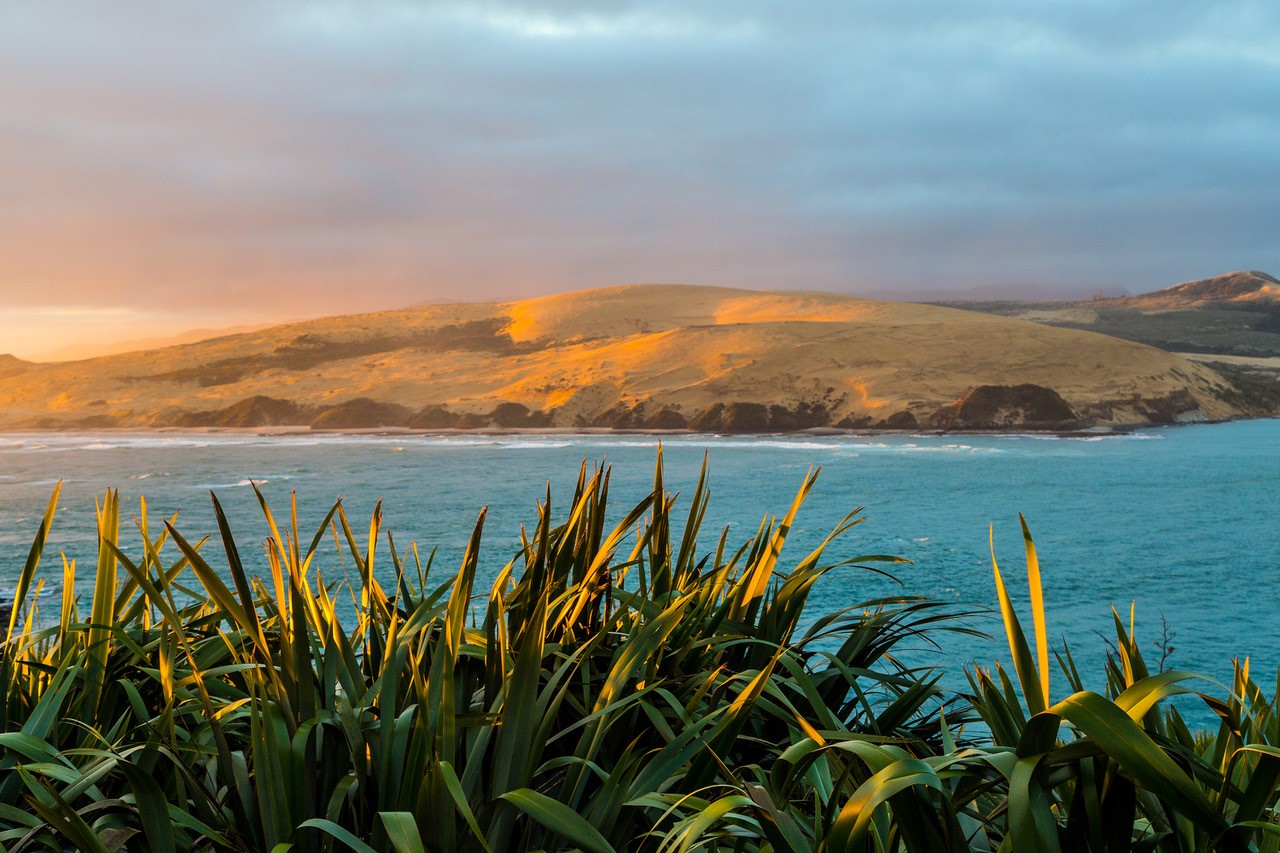
Travellers arriving by sea on any maritime vessel can complete a digital New Zealand Traveller Declaration (NZTD):
- Small craft
- Diplomatically-cleared
- New Zealand Defence Force
We’re sorry, this site is currently experiencing technical difficulties. Please try again in a few moments. Exception: request blocked
COVID-19 information hub
Keeping you safe while travelling
The wellbeing of our customers and our people is important to us, and we're doing what we can to ensure every journey together is a safe and enjoyable one. Here's what we are doing to help you travel safely.
Situation in Haiti April 5, 2024
U.s. citizens in haiti, update january 10, 2024, information for u.s. citizens in the middle east.
- Travel Advisories |
- Contact Us |
- MyTravelGov |
Find U.S. Embassies & Consulates
Travel.state.gov, congressional liaison, special issuance agency, u.s. passports, international travel, intercountry adoption, international parental child abduction, records and authentications, popular links, travel advisories, mytravelgov, stay connected, legal resources, legal information, info for u.s. law enforcement, replace or certify documents.
Share this page:
New Zealand Travel Advisory
Travel advisory september 8, 2023, new zealand - level 1: exercise normal precautions.
Reissued with removal of major event information.
Exercise normal precautions in New Zealand.
Read the country information page for additional information on travel to New Zealand.
If you decide to travel to New Zealand:
- Enroll in the Smart Traveler Enrollment Program (STEP) to receive Alerts and make it easier to locate you in an emergency.
- Follow the Department of State on Facebook and Twitter .
- Review the Country Security Report for New Zealand.
- Visit the CDC page for the latest Travel Health Information related to your travel.
- Prepare a contingency plan for emergency situations. Review the Traveler’s Checklist .
Travel Advisory Levels
Assistance for u.s. citizens, new zealand map, search for travel advisories, external link.
You are about to leave travel.state.gov for an external website that is not maintained by the U.S. Department of State.
Links to external websites are provided as a convenience and should not be construed as an endorsement by the U.S. Department of State of the views or products contained therein. If you wish to remain on travel.state.gov, click the "cancel" message.
You are about to visit:
- aid.govt.nz
- mfat.govt.nz
- NZ Embassies

Official advice for New Zealanders living and travelling overseas
- Before you go
- Quick checklist and tips
- Disability information
- Dual Citizenship
- Going to Australia?
- LGBTQIA+ travellers
- Staying healthy while travelling
- Passports and visas
- Solo travellers
- Travel insurance
- Travelling with a criminal conviction
- Work and income benefits
Travel advisories
- By destination
- Central Asia
- Central/South America
- Travel tips - travel to Europe
- Middle East
- North America
- Travel tips - travel to the United States
- South East Asia
- About our advisories
- Travel advisory risk levels
- News features
- When things go wrong
- Arrest and detention
- Contingency planning for New Zealanders overseas
- Financial difficulties
- Hostage taking and kidnapping
- Illness and injury
- Internet dating scams
- Internet fraud and international scams
- Large-scale emergency
- Lost, stolen or damaged passport
- Missing persons
- Nuclear incident
- Victims of crime
- Family issues
- Child abductions
- Combating sex crimes against children
- Inter-country adoptions
- Travelling with children
- Our services
- New Zealand embassy locator
Page updated:19/11/13 Print page -->
Search for travel advisories by region.
Find out more about our travel advisories.
Search for travel advisories by risk level.
Ministry of Foreign Affairs and Trade 195 Lambton Quay Private Bag 18 901 Wellington 5045 New Zealand
- About this site
- Accessibility
Cookies on GOV.UK
We use some essential cookies to make this website work.
We’d like to set additional cookies to understand how you use GOV.UK, remember your settings and improve government services.
We also use cookies set by other sites to help us deliver content from their services.
You have accepted additional cookies. You can change your cookie settings at any time.
You have rejected additional cookies. You can change your cookie settings at any time.
- Passports, travel and living abroad
- Travel abroad
- Foreign travel advice
New Zealand
Warnings and insurance.
This travel advice page covers New Zealand. See separate travel advice for Cook Islands, Tokelau and Niue .
The Foreign, Commonwealth & Development Office ( FCDO ) provides advice about risks of travel to help British nationals make informed decisions. Find out more about FCDO travel advice .
Before you travel
No travel can be guaranteed safe. Read all the advice in this guide as well as support for British nationals abroad which includes:
- advice on preparing for travel abroad and reducing risks
- information for women, LGBT+ and disabled travellers
Follow and contact FCDO travel on Twitter , Facebook and Instagram . You can also sign up to get email notifications when this advice is updated.
Travel insurance
If you choose to travel, research your destinations and get appropriate travel insurance . Insurance should cover your itinerary, planned activities and expenses in an emergency.

Related content
Is this page useful.
- Yes this page is useful
- No this page is not useful
Help us improve GOV.UK
Don’t include personal or financial information like your National Insurance number or credit card details.
To help us improve GOV.UK, we’d like to know more about your visit today. We’ll send you a link to a feedback form. It will take only 2 minutes to fill in. Don’t worry we won’t send you spam or share your email address with anyone.
Visas and travel
Find out about travelling to New Zealand — what happens at the border, visa requirements, biosecurity and customs rules.
Borders and visas
Immigration New Zealand have up-to-date information for people who:
- want to enter NZ
- are in NZ
- study in NZ
- want to start a business or invest in NZ
- are NZ employers.
New Zealand-visas — Immigration NZ
Arriving in New Zealand — what happens at the border
Biosecurity and customs rules
Find out what you can and cannot bring into New Zealand.
Bringing things into New Zealand
Travelling to NZ by air
Travellers flying into New Zealand’s international airports have the option to complete a digital arrival declaration or a paper arrival card.
New Zealand’s international airports are in Auckland, Wellington, Christchurch, Dunedin and Queenstown.
The digital arrival declaration can be completed within 24 hours of starting your trip to New Zealand. Do your declaration online or on the app — using your mobile phone or computer.
New Zealand Traveller Declaration — digital declaration
The paper Passenger Arrival Cards will still be available for travellers who cannot complete it online or prefer the paper version. The paper cards will be handed out on-board your flight to New Zealand .
COVID-19 declaration not required
Travellers entering New Zealand no longer need to complete a COVID-19 declaration.
New Zealand’s COVID-19 entry requirements ended on 20 October 2022.
Utility links and page information
JavaScript is currently turned off in your browser — this means you cannot submit the feedback form. It's easy to turn on JavaScript — Learn how to turn on JavaScript in your web browser. If you're unable to turn on JavaScript — email your feedback to [email protected] .
Do not enter personal information. All fields are optional.
You must enable JavaScript to submit this form
Last updated 11 July 2023
Contact NZ government
- A-Z of government agencies
- Contact details by topic
About this website
- About Govt.nz
- Feedback about Govt.nz
- The scope of Govt.nz
Using this website
- Accessibility
- Terms of use
Date printed 12 April 2024

Search Smartraveller

New Zealand
Latest update.
Exercise normal safety precautions in New Zealand.
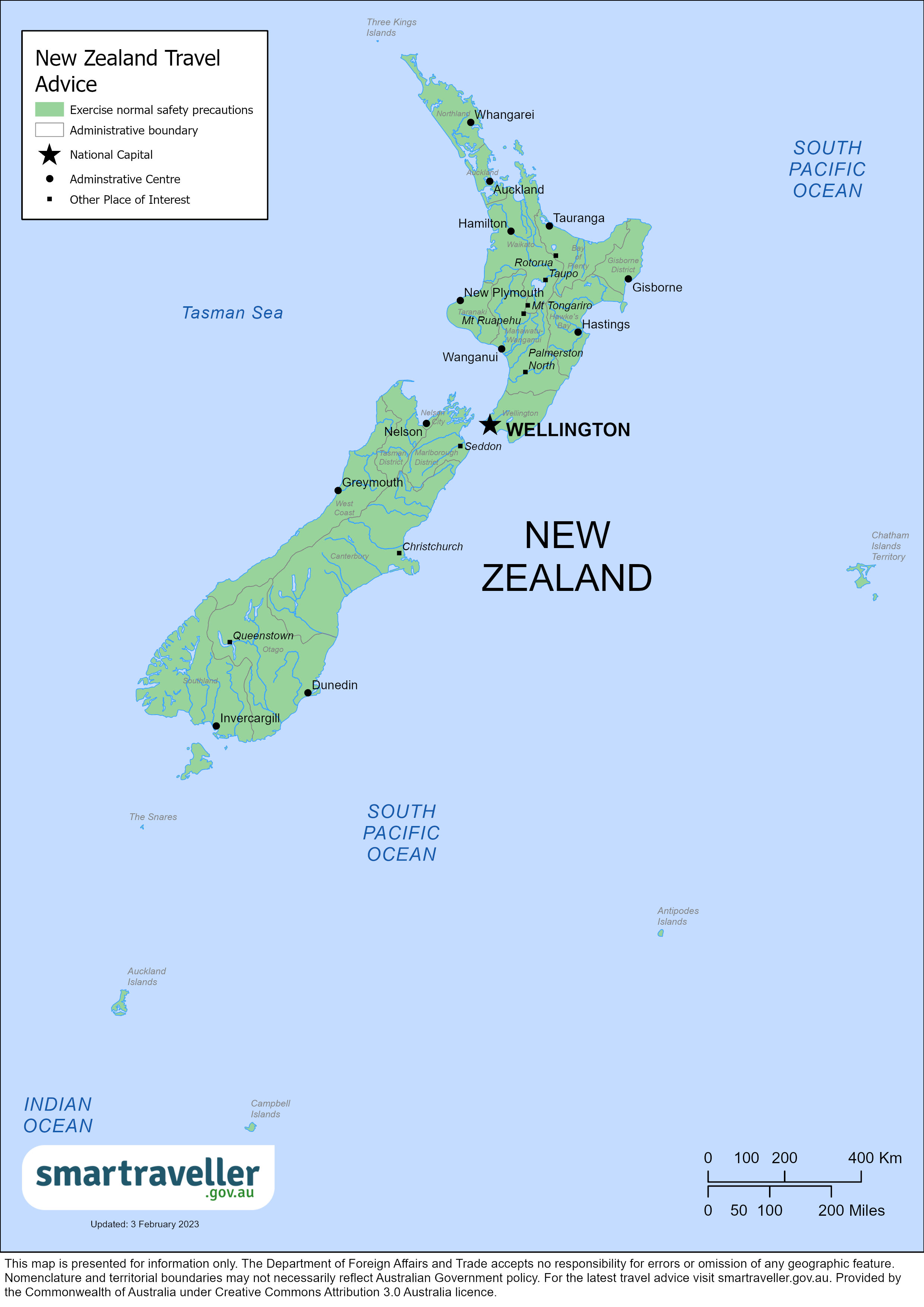
New Zealand (PDF 764.52 KB)
Pacific (PDF 1.22 MB)
Local emergency contacts
Fire and rescue services, medical emergencies.
Call 111 or contact the nearest police station.
Call 105 or go online for Police non-emergencies.
Advice levels
- Crime rates are similar to those in Australia. Thieves often target vehicles. Don't leave valuables in your car or campervan.
- Earthquakes are a constant risk. Large, damaging quakes can happen at any time. Know what to do during and after an earthquake.
- All of New Zealand's coastline is at risk of a tsunami. Know the tsunami warning signs and move to high ground immediately. Don't wait for official alerts.
- New Zealand has several active volcanoes. Volcanic alert levels may rise quickly. You may be ordered to evacuate at short notice. Stay informed and follow the advice of local authorities.
- Weather conditions can change quickly. Severe weather could leave you stranded or injured, especially in an isolated area. If you're climbing, hiking or in a remote area, register your trip with the Department of Conservation. Carry a personal locator beacon.
- Heavy rain is impacting much of the South Island and parts of the North Island, including Westland and Southland. Monitor the New Zealand Metservice for the latest information and follow the advice of local authorities.
Full travel advice: Safety
- Make sure your vaccinations are up to date before you travel.
Medical facilities and services are of a similar standard to those in Australia.
- New Zealand and Australia have a reciprocal healthcare agreement. This lets Australians access public medical facilities and care. However, there are some things it doesn't cover. Ensure you get comprehensive travel insurance.
- Following heavy rain, a precautionary boil water notice has been issued for the Franz Josef area (see 'Safety').
Full travel advice: Health
- Don't use or carry illegal drugs. Penalties may include fines and prison sentences, including for small amounts.
- Carry approved identification if you want to purchase alcohol or enter licensed premises. Approved ID includes your passport, a New Zealand driver's licence, an existing Hospitality NZ 18+ Card, or a Kiwi Access Card. An Australian driver's licence is not an approved form of ID under the NZ Sale and Supply of Alcohol Regulations.
Full travel advice: Local laws
You must complete a New Zealand Traveller Declaration Form (NZTD) before passport control on arrival. You need to answer questions about your trip and what you’re bringing into the country. You can complete it online or by using the NZTD app, there's no cost.
- Most Australian citizens don't need a visa to enter unless you have a criminal record or if you've been deported from any country. Entry and exit conditions can change at short notice. You can contact the nearest New Zealand embassy or consulate for the latest details.
- Before you travel, check Immigration New Zealand's website for current entry restrictions and requirements.
Full travel advice: Travel
Local contacts
- The Consular Services Charter details what the Australian Government can and can't do to help you overseas.
- To stay up to date with local information, follow the High Commission’s social media accounts
For consular help, contact the Australian High Commission in Wellington , or the Australian Consulate-General in Auckland.
Full travel advice: Local contacts
Full advice
Petty crime.
Crime rates in New Zealand are similar to those in Australia.
Thieves often target valuables left in cars and campervans.
Kidnapping can happen anywhere, anytime, including in destinations that are typically at lower risk.
The Australian Government's longstanding policy is that it doesn't make payments or concessions to kidnappers.
More information:
Cyber security
You may be at risk of cyber-based threats during overseas travel to any country. Digital identity theft is a growing concern. Your devices and personal data can be compromised, especially if you’re connecting to Wi-Fi, using or connecting to shared or public computers, or to Bluetooth.
Social media can also be risky in destinations where there are social or political tensions, or laws that may seem unreasonable by Australian standards.
- Cyber security when travelling overseas
Civil unrest and political tension
Demonstrations and protests.
Protests are generally peaceful. However, public protests and events that draw large groups of people can turn violent.
Follow the advice of local authorities.
- Demonstrations and civil unrest
Terrorism is a threat worldwide.
- New Zealand police
- New Zealand Security Intelligence Service
Climate and natural disasters
New Zealand experiences natural disasters and severe weather , including:
- earthquakes
- volcanic activity
- flash flooding
To protect yourself in a natural disaster:
- secure your passport in a safe, waterproof place
- follow the advice of local authorities
- keep in contact with friends and family
Monitor local media and other sources, including:
- Ministry of Civil Defence and Emergency Management
- Global Disaster Alert and Coordination System
- GetReady website (New Zealand government)
Earthquakes
Earthquakes are a constant risk in New Zealand.
Most quakes are too small or deep in the earth to feel. However, about 150 to 200 quakes are big enough to feel each year.
Large, damaging earthquakes have occurred and could happen again at any time. Aftershocks can continue for days or weeks.
When an earthquake happens, you're advised to drop, cover and hold. If an earthquake is long or strong, and you're near the coast or large body of water, you should go to higher ground immediately.
If you're indoors during an earthquake:
- move no more than a few steps to a heavy, solid object you can get underneath, and hold onto it
- don't try to run outside
- stay indoors until the shaking stops
- stay away from windows, chimneys, and shelves with heavy objects
If you're in bed:
- hold onto the bed and stay where you are
- protect your head and body with a pillow and blankets
If you're outdoors:
- move to the nearest clear spot
- keep away from buildings, trees, and power lines
- drop to the ground
If you're in a car:
- drive to a clear place away from buildings, trees, and power lines
- stay in the car with your seatbelt on until the shaking stops
If you're in a lift:
- stop at the nearest floor and get out
After the earthquake finishes:
- be aware of possible tsunami risks (see below)
- prepare for travel delays
- reconfirm your travel arrangements
- check your accommodation with travel agents and tour operators
Because of the region's earthquake risk, tsunamis could happen.
All of New Zealand's coastline is at risk of a tsunami. New Zealand is a member of the Pacific Tsunami Warning System.
The National Emergency Management Agency manages the National Tsunami Advisory and Warning Plan and issues tsunami alerts on its website. These are also broadcast by New Zealand media.
A tsunami could arrive within minutes. There may not be time for an official warning.
Move immediately to high ground, or as far inland as possible, if you're near the coast and you:
- feel a strong earthquake that makes it hard to stand up
- feel a weak, rolling earthquake that lasts a minute or more
- see a sudden rise or fall in sea level
- hear loud and unusual noises from the sea
Don't wait for official warnings.
Walk or bike if possible because of potential road congestion.
New Zealand's active volcanoes can erupt at any time. Volcanic alert levels may rise quickly. You may be ordered to evacuate at short notice.
If there's volcanic activity:
- follow the instructions and advice of local authorities
- follow evacuation orders
- take official warnings seriously
If you plan to visit active volcanoes or surrounding areas:
- monitor the GeoNet website
- get local advice first
Visit GeoNet for information about volcanic activity at:
- Mt Tongariro
- White Island
- other active volcanic sites
Severe weather
Heavy rain is impacting much of the South Island and parts of the North Island, including Westland and Southland. Monitor the New Zealand Metservice for the latest information and follow the advice of local authorities. Following heavy rain and flooding, a precautionary boil water notice has been issued for the Franz Josef area.
Weather conditions can change quickly. Severe weather can occur.
Creeks and rivers can experience flash flooding after heavy rains.
Rapid weather changes could leave you stranded or injured, particularly if you're in a remote area.
Monitor weather conditions, forecasts and warnings from Metservice .
Take extra care if you're climbing, hiking or in a remote area.
Parts of New Zealand experience bushfires in hot, dry conditions.
If there's a bushfire, follow local advice.
Adventure activities
Most people enjoy adventure activities safely in New Zealand. However, these activities carry risks.
Several serious accidents involving Australians and other travellers have occurred. People have died.
Some operators have been found to be negligent.
Safety standards can differ both between individual operators, and from standards in Australia.
If you plan to do an adventure activity:
- be aware of the risks of individual or group activities
- check the safety standards of operators
- check to see if operators meet industry standards
Safety risks can increase in severe weather and remote areas.
Before you do any adventure activities :
- make sure your travel insurance covers your planned activities
- understand what your travel and other insurance doesn't cover
- only book with operators with appropriate safety equipment and practices
- always use the safety equipment, even if others don't
If you're trekking or travelling in a remote area:
- get updates on local weather from the Department of Conservation
- check conditions with the local DOC visitor centre
- register your trip with a DOC visitor centre
- tell your family and friends your plans
- carry a personal locator beacon
- avoid creeks and rivers after heavy rains
You can hire personal locator beacons throughout New Zealand.
When you return from a hike, check in with:
- the DOC visitor centre
- your family and friends
- anyone else who knew your plans
- AdventureSmart
- Mountain Safety Council
Travel insurance
Get comprehensive travel insurance before you leave.
Your policy must cover all overseas medical costs, including medical evacuation. The Australian Government won't pay for these costs.
If you can't afford travel insurance, you can't afford to travel. This applies to everyone, no matter how healthy and fit you are.
If you're not insured, you may have to pay many thousands of dollars up-front for medical care.
- what activities and care your policy covers
- that your insurance covers you for the whole time you'll be away (including if stopovers on the way to your destination are covered)
Physical and mental health
Consider your physical and mental health before you travel, especially if you have an existing medical condition.
See your doctor or travel clinic to:
- have a basic health check-up
- ask if your travel plans may affect your health
- plan any vaccinations you need
Do this at least 8 weeks before you leave.
If you need counselling services in New Zealand, contact:
- Lifeline – 0800 543 354 or free text HELP (4357)
- Suicide Crisis Helpline – 0508 828 865 (0508 TAUTOKO)
- Healthline – 0800 611 116
- Samaritans – 0800 726 666
- General health advice
- Healthy holiday tips (Healthdirect Australia)
Not all medication available over the counter or by prescription in Australia is available in other countries. Some may even be considered illegal or a controlled substance, even if prescribed by an Australian doctor.
If you plan to take medication, check if it's legal in New Zealand. Take enough legal medication for your trip.
Carry a copy of your prescription or a letter from your doctor stating:
- what the medication is
- your required dosage
- that it's for personal use
- New Zealand Customs Service
- Medicare Australia
Health risks
Health risks are broadly similar to those in Australia.
Medical care
Medical facilities, reciprocal health care.
New Zealand and Australia have a reciprocal health care agreement . This lets Australians access public medical facilities and care.
It doesn't:
- include ongoing treatment of existing health conditions
- cover extra accommodation costs or flights for family members
- cover flights to Australia
- replace the need for travel insurance.
To access services under the agreement:
- show your current Australian passport or evidence of permanent residency
- show your valid Medicare card.
- New Zealand Ministry of Health
- Reciprocal health care agreement (Services Australia)
Accident Compensation Corporation
If you're injured in an accident, the Accident Compensation Corporation (ACC) covers the costs of hospital treatment.
The cover provided by ACC:
- offers injury cover on a 'no-fault' basis — this means accident victims don’t have a legal right to sue a third party
- ends once you've left New Zealand
- doesn't replace your need for travel insurance .
You're subject to all local laws and penalties, including those that may appear harsh by Australian standards. Research local laws before travelling.
If you're arrested or jailed, the Australian Government will do what it can to help you under our Consular Services Charter . But we can't get you out of trouble or out of jail.
Penalties for possessing and using drugs may include fines and prison sentences.
- Carrying or using drugs
Alcohol laws
You'll need photo ID to buy alcohol or enter licensed premises.
You can't use your Australian driver's licence.
Approved IDs include:
- current passport
- current New Zealand driver's licence
- Kiwi Access Card
- Approved ID
Quarantine regulations
New Zealand has strict biosecurity rules.
If you don't declare items for quarantine, you'll get an instant fine.
If you make a false statement, you'll face heavy fines and prison sentences.
Customs requirements
When you arrive, customs officers may check electronic devices they suspect are being used in criminal activity. Devices may include:
- mobile phones
- portable tablets
- hard drives
- digital cameras
Australian laws
Some Australian criminal laws still apply when you're overseas. If you break these laws, you may face prosecution in Australia.
- Staying within the law and respecting customs
Dual citizenship
New Zealand recognises dual nationality.
If you're an Australian-New Zealand dual citizen, use your Australian passport to enter and leave Australia.
- Dual nationals
Visas and border measures
Every country or territory decides who can enter or exit through its borders. Make sure you meet all entry and exit conditions. Contact NZ Immigration for details about visas, currency, customs and quarantine rules. If you don't meet the conditions, the Australian Government can't help you.
Visa conditions
Most Australian citizens don’t need a visa to enter unless you have a criminal record or if you've been deported from any country.
Australian permanent residents need to apply online for a New Zealand Electronic Travel Authority (NZeTA) to enter New Zealand. Australian citizens are exempt from this rule.
For more information refer to the NZ Government Immigration website .
If you've been:
- convicted of any crimes, or
- deported from any country
Contact a New Zealand Visa Application Centre for advice well before you travel.
New Zealand Visa Application Centre
Level 6 66 Hunter Street Sydney NSW 2000
Phone: +61 2 8278 4529 or 1800 388 718 Website: www.immigration.govt.nz Email: [email protected]
Border measures
If you are a New Zealand visa or NZeTA holder you still need to complete an NZTD.
For more information see the NZTD website .
Maritime border
New Zealand's maritime border is open to all vessels, including foreign flagged vessels, cruise ships, recreational vessels (such as yachts and small craft) and specialist vessels used in research and exploration.
For more information see the New Zealand Customs Service – Travelling to New Zealand webpage .
- Travelling to New Zealand (New Zealand Government)
- Information for visa holders (New Zealand Immigration)
Some countries won't let you enter unless your passport is valid for 6 months after you plan to leave that country. This can apply even if you're just transiting or stopping over.
New Zealand Immigration requires you to have 3 months of validity on your passport after the date you plan to leave. If you're planning to travel to another destination after leaving New Zealand, you may need more than 3 months validity on your passport after your departure date.
Some foreign governments and airlines apply the rule inconsistently. Travellers can receive conflicting advice from different sources.
You can end up stranded if your passport is not valid for more than 6 months.
The Australian Government does not set these rules. Check your passport's expiry date before you travel. If you're not sure it'll be valid for long enough, consider getting a new passport .
- NZ Immigration
Lost or stolen passport
Your passport is a valuable document. It's attractive to people who may try to use your identity to commit crimes.
Some people may try to trick you into giving them your passport. Always keep it in a safe place.
If your passport is lost or stolen, tell the Australian Government as soon as possible:
- In Australia, contact the Australian Passport Information Service .
- If you're overseas, contact the nearest Australian embassy or consulate .
Passport with ‘X’ gender identifier
Although Australian passports comply with international standards for sex and gender, we can't guarantee that a passport showing 'X' in the sex field will be accepted for entry or transit by another country.
New Zealand Immigration recognises gender 'X' on passports. If in doubt, contact the nearest embassy, high commission or consulate of your destination before you arrive at the border to confirm if authorities will accept passports with 'X' gender markers.
More information:
- LGBTI travellers
The local currency is the New Zealand Dollar ($NZ).
Declare all amounts over $NZ10,000 or equivalent on arrival and departure. This covers all forms of currency, not only cash.
ATM availability is similar to Australia.
You can use debit or credit cards in most places as you would in Australia.
Contact your bank to let them know you'll use your cards overseas.
Local travel
Driving permit.
You can drive for up to 12 months with your Australian driver's licence.
After that, you'll need to get a local licence.
- Driver licences
Road travel
Ice, snow, fog, high winds and roaming animals can cause hazardous conditions. Heavy rain can cause landslides across roads.
Outside major cities, there aren't many motorways. Overtaking opportunities are limited.
Prepare for longer travel times than in Australia.
Railway crossings don't always have barriers, particularly in country areas.
If you're driving in mountain areas or to ski fields, be aware that roads:
- are often narrow and unpaved
- may not have safety barriers
- may require you to use snow chains
- may only be accessible by 4WD
It’s illegal to use a mobile phone while driving, but there is an exemption for 111 calls in genuine emergencies. Hands-free devices and 2-way radio are permitted.
If you plan to drive in New Zealand:
- learn the local road rules before driving
- be careful if there's ice, snow, fog or high winds
- check for road closures and warnings with the New Zealand Transport Agency
- equip yourself for current and possible weather conditions
- Driving or riding
- Driving in New Zealand
Motorcycles
Make sure your travel insurance covers using a motorbike, quad bike or similar vehicle.
Always wear a helmet.
Taxis and rideshares are generally reliable. The standards are similar to Australia.
The New Zealand Transport Authority regulates taxis and rideshare apps.
Public transport
Buses, trains and ferries operate throughout New Zealand. State-run services are also regulated by the New Zealand Transport Authority.
Take care of your belongings on public transport.
- Transport and getting around safely
Several international cruise lines stopover in New Zealand.
- Going on a cruise
DFAT doesn't provide information on the safety of individual commercial airlines or flight paths.
Check New Zealand's air safety profile with the Aviation Safety Network.
Emergencies
Depending on what you need, contact your:
- family and friends
- travel agent
- insurance provider
Always get a police report when you report a crime.
Your insurer should have a 24-hour emergency number.
Consular contacts
Read the Consular Services Charter for what the Australian Government can and can't do to help you overseas.
Australian High Commission, Wellington
72-76 Hobson Street Thorndon Wellington, New Zealand
Phone: +64 4 473 6411 Fax: +64 4 498 7103 Website: newzealand.highcommission.gov.au Facebook: Australia in New Zealand Twitter: @AusHCNZ
Australian Consulate-General
Level 7, HSBC Tower 186-194 Quay Street Auckland City, New Zealand
Phone: +64 9 921 8800 Fax: +64 9 921 8820
Check the High Commission website for details about opening hours and any temporary closures.
24-hour Consular Emergency Centre
In a consular emergency, if you can't contact an embassy, call the 24-hour Consular Emergency Centre on:
- +61 2 6261 3305 from overseas
- 1300 555 135 in Australia

Travelling to New Zealand?
Sign up to get the latest travel advice updates..
Be the first to know official government advice when travelling.
- Search Please fill out this field.
- Manage Your Subscription
- Give a Gift Subscription
- Sweepstakes
- New Zealand Travel Guide Overview: New Zealand Travel Guide
- This Country Is Made Up of 2 Stunning Islands Full of Pristine Beaches and Otherworldly Landscapes
- This New Zealand Town Is an All-season Destination With Epic Skiing, Hiking, and Wineries
- 10 Mistakes to Avoid on Your Trip to New Zealand, According to a Local
- New Zealand Travel Guide This Country Is Made Up of 2 Stunning Islands Full of Pristine Beaches and Otherworldly Landscapes This New Zealand Town Is an All-season Destination With Epic Skiing, Hiking, and Wineries 10 Mistakes to Avoid on Your Trip to New Zealand, According to a Local CLOSE Part of New Zealand Travel Guide
How to Plan the Perfect Trip to New Zealand
See the best places to stay, dine, and experience the beauty of New Zealand, according to a local.
Amy Louise Bailey is a freelance content creator and media specialist. Her work has been published in Vogue , Harper’s Bazaar , Elle , Condé Nast Traveler, Bloomberg Pursuits , and Robb Report .
Bay of Islands
Christchurch, best times to visit new zealand, how to get there, transportation.
Tessa Desjardins/Travel + Leisure
When people learn I’m from New Zealand , I often hear that it’s at the top of their bucket list — or, if they’ve been, that it’s their favorite country in the world. I may be biased, but I am not surprised. The stunning natural beauty, thriving culinary scene, and unique outdoor activities would charm even the most seasoned traveler.
Everywhere you look, there’s a picture-perfect backdrop filled with greenery and crystal-clear waters. And although it has a lot of untouched land, it boasts the same highlights you would find in any major global city, with art galleries, shopping districts, nightlife, and luxury hotels. Plus, it’s politically stable and very safe, which are increasingly appealing traits.
Geographically, the country is divided into two islands with distinct characteristics: the North Island is full of beaches and is home to the main cities, and the South Island is an alpine wonderland, defined by majestic mountain landscapes, rugged coasts, and world-class ski slopes. There has been a lot of development over the past few years, and travelers have more places to eat, stay, and play than ever before. Below, see Travel + Leisure ’s essential guide to making the most of this magical South Pacific destination, according to a local.
Angelina Pilarinos/Travel + Leisure
North Island
The North Island is lined with beautiful beaches and islands surrounding the narrow coasts. It’s also where the capital, Wellington, is located, along with the country’s largest and most cosmopolitan city, Auckland , which is an essential destination on any New Zealand itinerary (and the gateway for most international flights). As Annie Dundas, head of the visitor economy for Auckland Unlimited notes, Auckland is “an urban oasis — the perfect fusion of a busy, modern city that looks out to mesmerizing landscapes and islands — all within easy reach and laden with wineries and leisurely places for long lunches.” It is worth spending at least four days in Auckland, but the North Island has many unique areas to explore, and below, we’ve charted the key destinations to prioritize.
Things to Do
Waiheke Island
Waiheke Island is a popular day trip for locals and is accessible by boat, ferry, or helicopter from downtown Auckland. It’s filled with boutique wineries, restaurants, and beautiful beaches, and is especially popular in the summer months, when music festivals and jazz concerts are hosted in sprawling vineyards. There’s also a contemporary art sculpture trail, Sculpture on the Gulf , hosted each summer, enticing many Aucklanders across the harbor for a cultured day out. Pop over for the day, tour the wineries, get a scoop of ice cream at Island Gelato Company , and wander around the artisan boutiques. If you’d like to spend the night, there are high-end rentals available on Waiheke Unlimited and Vrbo , or for a hotel, go for Delamore Lodge .
Visit the Auckland Museum and the Auckland Art Gallery
For a close-up view of New Zealand’s culture and history, visit the stately Auckland Museum , where you’ll find a collection of national artifacts along with a rotation of exhibitions. It’s set at the top of the city’s main park and is within walking distance of Auckland CBD, where the Auckland Art Gallery is located. Here you’ll find some of the country’s most valuable artworks along with various international collections. Both are worthwhile attractions that can be ticked off in half a day.
Explore Commercial Bay and Britomart
Downtown Auckland has been transformed over the past decade and has become the city’s most vibrant shopping and dining hub. It’s bustling from day to night and is especially packed on Friday nights for after-work drinks and dinner. You can find some of the city’s best restaurants and cocktail bars within a small vicinity, and it’s a fashion mecca, with storefronts from major brands and local fashion designers (be sure to check out Karen Walker , Kate Sylvester , and Zambesi ).
Courtesy of Park Hyatt Auckland
Park Hyatt Auckland
Since opening in 2020, the Park Hyatt has become the crème de la crème of the Auckland hotel scene. It has a prime location, excellent views, amenities, restaurants, and spacious rooms with freestanding bathtubs and terraces overlooking the Viaduct Harbor — ideal for room service with some atmosphere. It’s within walking distance of the best bars, restaurants, and shops, but it feels like a serene enclave where you can manage to get a good night’s sleep, despite being right by the action.
The Hotel Britomart
As the name suggests, this chic hotel is located right in the heart of Britomart, surrounded by some of Auckland’s best shopping and dining. Rooms are sleek and modern yet very small, so are suitable for solo travelers and couples. If you’re seeking something more spacious, the suites are some of the finest in the city (with price tags to match). And the restaurant, Kingi, is also excellent.
Sofitel Auckland Viaduct Harbor
Located between the Viaduct and Wynyard Quarter, the Sofitel has long been a go-to for celebrities and diplomats visiting New Zealand. It boasts the high standards that you would expect from the French hotel brand, with a fine-dining restaurant, elegant interiors, and an impressive spa and wellness center.
Restaurants
For a fun atmosphere and Italian-inspired fare, head to Bivacco in the Viaduct. The menu has sharable classics like pizza, antipasto, pasta, and oysters, and on any given day, you’ll find yourself surrounded by well-heeled locals socializing over bottles of rosé and cocktails.
Soul is a restaurant that has stood the test of time, and for over 20 years, it has been a go-to venue for some of the city’s most stylish soirees. Like Bivacco, it’s also a lively spot in the heart of the Viaduct, where people go for the food as well as the scene. After dinner, there’s a dance floor that attracts a mature crowd, and on the menus you’ll find fresh seafood and bistro classics alongside an extensive wine and Champagne list.
While it’s not the newest or the sceniest place, Prego has been a solid option along Ponsonby Road for years and is just as popular with families as it is for birthday celebrations and dinners preceding big nights out at the bars along the strip. Go for the pizza or the chicken saltimbocca — everything on the menu is great as are the cocktails. Always a reliable destination for a good atmosphere and delicious food.
Museum of New Zealand Te Papa Tongarewa
Known locally as Te Papa , the country’s largest museum is an essential on any Wellington itinerary. It contains over 800,000 artworks and objects, and it has a rotation of exhibitions including dinosaur skeletons and ancient artifacts that you would expect to find at the American Museum of Natural History. It’s an interesting experience for children and adults alike.
Ride the Wellington Cable Car
For panoramic views of the city, jump on the historic Wellington Cable Car , which boards in the heart of the Lambton Quay shopping district and travels up the hillside of Kelburn. Here you will find a scenic lookout, botanic gardens, and the Cable Car Museum .
Wander Hannahs Laneway
Also known as Leeds Street, Hannah’s Laneway is a foodie’s paradise, lined with street food vendors, contemporary art, and cool cafes. You can pick up a variety of distinctly "Kiwi" specialties, from black forest toast to pies and creamy hot chocolates. Just be sure to skip breakfast so you have room to sample everything.
QT Wellington
This centrally located hotel could be equated to the likes of The Standard and Edition Hotels, with quirky, ultramodern design and a lively food and beverage scene. It’s right across from the Te Papa Museum in the center of town and is popular with both business and leisure travelers. There are 65 hotel rooms with either city or harbor views, and it also has 98 apartments.
Wharekauhau Country Estate
Although it’s a 90-minute drive from Wellington, this luxury lodge is a popular stop on any Wellington itinerary. It’s set on a 5,000-acre estate overlooking the coast and has welcomed the royal family and many international diplomats visiting the capital. Everything is designed so that you don’t need to leave: food is included and sourced from the farm, it has a spa and fitness center, and a variety of outdoor activities from ATV quad biking to tennis.
You will need to book a month in advance to secure a table at this intimate prix-fixe restaurant. The menu is seasonal and it changes every day, so there’s always something new. A typical night might feature lamb manti, panfried snapper, and crisp meringue — delicious renditions of local New Zealand cuisine.
Located on the nightlife-centric Cuba Street, Loretta is a place to enjoy crowd-pleasing classics in a fun environment. It’s renowned for its sourdough pizzas and vanilla cheesecakes and is a great place to go with friends before a night out or for brunch on a Sunday.
Ortega Fish Shack
This nautical-themed restaurant has some of the best seafood around, from Yellowtail Kingfish ceviche to smoked Moki rillettes and green lipped mussels. It’s a charming and eclectic place that perfectly represents the hip, creative vibe of Wellington.
Sculptureum
Sculptureum is a lovely and cultured place to spend an afternoon, with six art galleries, three sculpture gardens, a vineyard, and a restaurant appropriately named Rothko. Whether you’re staying in the area or doing a day trip up from Auckland, it’s an essential for contemporary art lovers and is especially great to visit in the summer months.
Matakana Village Farmers Market
Every weekend, Matakana Village comes alive with rustic markets featuring a variety of artisan food stands and fresh local produce. You’ll find delicious local cheese, honey, baked goods, chocolate, and award-winning flat whites. It’s set up right next to the boutiques in the charming village, where you’ll find everything from quaint homeware stores to shoe shops, and there’s also a cinema and a restaurant within the main village complex.
Omaha Beach
The Rodney District has some of the most stunning beaches on the North Island, and one of the most popular among them is Omaha — a white sand beach that attracts swimmers, surfers, and families setting up for the day. It’s only a 10-minute drive from Matakana Village, and it has ample parking, a café, a boutique with swim essentials, and a playground. For bigger waves, surfers head to Tawharanui Beach , which is also located within the Matakana region.
Takatu Lodge
This gorgeous boutique lodge is located on a serene hilltop overlooking the Hauraki Gulf. It has only four suites with luxurious furnishings, underfloor heating, and views overlooking the gardens and the vineyards. Meals are provided in the dining spaces and tailored to guests’ preferences. Also, picnics are on offer for those wanting to set up at the nearby beaches for the day.
Courtesy of Brick Bay
Brick Bay is a similar concept to Sculptureum, with a restaurant, wine tastings, and a contemporary sculpture trail positioned around a pond and throughout a native bush. It’s been around for a long time and is very popular with both locals and Aucklanders, so it’s worth booking in advance, even if it’s just to sample their wine varietals over a cheese platter after the lunchtime rush.
Cruise the Islands
The Bay of Islands has 144 subtropical islands, and there are many ways to explore them, be it by chartering a yacht, going on a scheduled group boat tour, hiring a kayak, or embarking of a snorkeling expedition. You can see an abundance of enchanting sea life, too, including dolphins, penguins, and whales.
Visit the Waitangi Treaty grounds
The Waitangi Treaty Grounds is New Zealand’s most important historic site, where the country’s founding document was signed back in 1840. Today, it contains two museums with interactive displays, guided tours to learn about the country’s history, and traditional Maori cultural performances that are staged in the meeting house.
Kauri Cliffs
Kauri Cliffs was recently added to the Rosewood portfolio, which is testament to its high standards. It’s one of New Zealand’s most iconic luxury lodges, with a golf course that is ranked 37th on Golf Digest ’s Top 100 Greatest Golf Courses in the World, an excellent restaurant, and a fabulous spa nestled into a tranquil forest full of native birdlife.
Eagle’s Nest
Positioned on a private 75-acre peninsula overlooking the Bay of Islands, Eagle’s Nest is one of New Zealand’s most luxurious boutique retreats. It is an intimate enclave, with only five villas that are beautifully designed. One thing to note is that there is no restaurant, however breakfast provisions are provided and there are on-call chefs available for private dining.
Duke of Marlborough
The Duke of Marlborough is New Zealand’s first pub, and since opening in 1827 (before the Treaty of Waitangi was signed nearby), it has undergone various reincarnations. Visit today and you’ll find a refined version of a classic pub, with décor that feels fresh while honoring its history. Menus feature locally sourced, seasonal fare with popular items like paua risotto, clam fritters, pork belly, and of course, a solid burger.
Taylor McIntyre/Travel + Leisure
South Island
The South Island is renowned for its spectacular natural scenery from the golden beaches of the Abel Tasman to the fiords and mountains in the Southern Alps. The vibe is generally more casual, and it’s where many of the country’s best adventure activities can be experienced. In Wanaka and Queenstown , you’ll find pristine ski slopes, dramatic mountain landscapes, and an array of sprawling wineries. It’s also home to many of New Zealand’s Great Walks and multi-day hikes. There are many beautiful places to explore, and as Sarah Handley, Tourism New Zealand's general manager for the Americas and Europe notes, “New Zealand's connection to the U.S. has never been stronger, and Americans can now fly non-stop to Christchurch, in the South Island, with United's direct service from SFO [starting Dec. 8].”
Americans can now fly non-stop to Christchurch, on New Zealand's South Island, with United Airlines' direct service from San Francisco (SFO) starting Dec. 8.
Over the Top Helicopter Tour
For a true bucket list experience, take a helicopter ride and tour through the Southern Alps and the Milford Sound. It’s the most magical way to see everything, and experience areas that are usually inaccessible, like the secluded Madagascar Beach and snow-capped, sky-high peaks. The "eurocopters" are state of the art, with maximum visibility from any vantage point. They can be booked privately or as part of scheduled group tours.
JensenChua/Getty Images
TSS Earnslaw Cruise
Renowned as "the Lady of the Lake," the Earnslaw is a 110-year-old steamboat that tours Lake Wakatipu from Queenstown down to Glenorchy. It’s one of the best ways to observe the natural grandeur of the Remarkables and Cecil Peak and is a particularly popular activity for families. The cruise itself take 90 minutes, but there are various experiences that can be added on arrival at Walter Peak High Country Farm, including horse treks, cycling, or barbecues.
Arrowtown is a historic gold-mining town that looks like a village out of a fairy tale. Everything has been lovingly preserved and it is lined with quaint artisan boutiques, galleries, cafes, and restaurants. It’s only a 20-minute drive from Queenstown, and on the way, you could stop at Millbrook Resort for a round of golf or a spa session (just outside of the main village). Be sure to stop at The Remarkable Sweet Shop for the crème brulee fudge.
Eichardt’s Private Hotel
Eichardt’s an iconic Queenstown establishment and one of the most beloved boutique hotels in the country. It has an exceptional cocktail bar, restaurant, and a spa, along with a $20,000-per-night penthouse located above the Louis Vuitton boutique next door. The location could not be better, positioned right on the shores of Lake Wakatipu in the center of the action. Inside the rooms, the interiors are ultra-luxurious and suited to the alpine theme of the town — think crackling fireplaces, marble bathrooms with underfloor heating, and plush beds with fur throws.
Matakauri Lodge
Matakauri Lodge is another property that was recently added to Rosewood’s portfolio (along with Kauri Cliffs and Cape Kidnappers in the Hawkes Bay) and is a key destination on New Zealand’s luxury circuit, hosting the British royal family and many celebrities over the years. The intimate lakeside retreat has only 13 spacious accommodations and it boasts stunning views of the Remarkables and Lake Wakatipu. Cocktail hour is a social affair, and the food and wine offerings are world class.
The Carlin is new, but it’s already garnered international acclaim, winning Best New Hotel at the Boutique Hotel Awards in 2022. It’s a place that would have "Palace" distinction if it were in France, with ultra-luxe amenities that surpass the typical five-star standard. Guests have access to private jets and Michelin-star dining, and it is home to the largest penthouse in the Southern Hemisphere.
Located just a 15-minute drive from the city center, Amisfield is the most popular winery and restaurant in the region and is an essential daytime excursion for any Queenstown itinerary. Wine tastings are available, and there are excellent Pinot Noirs produced on site. But to make the most of it, do an al fresco lunch in the beautifully manicured courtyard and take in the views of the postcard-worthy mountains.
Botswana Butchery
This lively lakefront bistro is one to book in advance, particularly if you’re visiting on a weekend. It has a charming atmosphere and some of the best representations of hearty New Zealand cuisine sourced from the surrounding farms and waters. It also has an excellent wine list with varietals from vineyards in the area.
You will need to time your visit to Fergburger well, as the lines can often exceed an hour in the evenings, but it has the best burgers in Queenstown (and anywhere, really) and is worth factoring in. There is a long menu of options to suit everyone including vegetarian options, beef, lamb, pork, fish, chicken, and also breakfast burgers. The same operators also opened Fergbaker next door where you can pick up a classic meat pie — both delicious options, especially on a cold and snowy day.
Blanket Bay
Glenorchy is very remote, and what to do, where to stay, and where to dine all fall under the same category if you want to do it well. The place to go? Blanket Bay, where apocalypse-weary billionaires are known to escape. It is one of the country’s finest luxury lodges and is the best way to experience all the area has to offer, with an excellent restaurant, bar, spa and wellness center, and a variety of outdoor activities from horse riding to heliskiing and jet boating. Accommodations are split between rooms in the main house and luxuriously decorated standalone villas.
Aoraki Mackenzie International Dark Sky Reserve
Located in the Mt. Cook National Park, the Aoraki Mackenzie International Dark Sky Reserve has some of the clearest and darkest skies for star-spotting. It was the first Dark Sky Reserve to be established in New Zealand, and is a magical way to experience the country’s untouched natural beauty by night.
Explore the City’s Art Galleries
Christchurch has a thriving art scene and many galleries in the central city that are worth checking out. The main ones to prioritize are the Centre of Contemporary Art (CoCa) , Christchurch Art Gallery Te Puna o Waiwhetu , and the Christchurch Art Centre .
The Mayfair
Since opening in 2022, The Mayfair has been a welcome addition to the city’s luxury hotel scene. It’s a boutique hotel with minimal, contemporary décor, and sophisticated dining options from high tea to an all-day café and cocktail bar and bistro. The central location makes it popular for both leisure and business travelers.
The Observatory Hotel
The Observatory is a chic, design-forward boutique hotel that also opened in Christchurch in 2022. It has rich interiors that give the sense of eternal night, with vivid colors and ambient lighting. Rooms are very photogenic, and there are multiple dining options from the Drawing Room to all-day eatery Bunsen, and more casual options within the broader complex, from food trucks to sushi and dumplings.
Inati is a stylish fine dining establishment helmed by the former head chef of Gordon Ramsay’s The Warrington. If there’s one place to book in advance in Christchurch, this is it. The menu is filled with sharing plates and is divided into earth, land, and sea categories. Guests can park up at elegant stools overlooking the open kitchen and observe their food being artfully crafted.
If you want to experience the great outdoors (which is the primary drawcard), the best time to visit is over the summer, between December and the beginning of April. During this period, temperatures are balmy and you’re more likely to encounter solid blocks of sunshine. It’s also when the cities come alive, with many music festivals and cultural events, and is the best time to explore the beaches, wineries, and stunning walking tracks. That said, New Zealand is a great place to visit year-round, and it is also a world-renowned ski destination with ski resorts throughout the North and South Island. If you’re looking to ski, the months to consider would be between June and October, when the fields are open.
Fiona Goodall/Getty Images
The best way to get to New Zealand is to fly into Auckland Airport, which is the country’s primary gateway. Air New Zealand has multiple routes available, including a direct flight from New York City, which takes 17 hours but is surprisingly manageable, given it flies overnight (and the airline is renowned for its excellent cuisine and high standard overall). United Airlines is launching a direct flight from San Francisco's SFO in December, and Qantas also has a route from New York to Auckland.
Once you arrive at the airport, there are taxis and rideshare services available, including Uber, but given everything is quite spread out, it is definitely worth renting a car. That will allow you to easily explore all of the different areas (some of which don’t have regular public transport options available). Driving is also a great way to visit some of the more remote beaches and destinations off the beaten path. If you’re planning on staying in the city centers, there are buses available, trains (albeit with limited routes), and ferries.
New Zealand Travel Guide
- Australian COVID-19 International Travel Guidelines >
Travel Medicine Clinical Guidelines Australia and New Zealand
This website is intended to provide information to australian and new zealand healthcare professionals seeking travel medicine guidelines. if you are not a healthcare professional, please seek advice from a travel medicine healthcare provider in your area., explore disease states, click on a specific disease state below to find out more:, upcoming guidelines, stay tuned for upcoming guidelines, australian covid-19 international travel guidelines.
Thank you for your interest in the Travel Medicine Clinical Guidelines Australia and New Zealand. We are always striving to improve our guidelines. If you have any feedback or wish to see other guidelines in the future, please submit your feedback here.
- International edition
- Australia edition
- Europe edition

New Zealand tightens visa rules after migration hits ‘unsustainable’ levels
Net migration to New Zealand hit a near record high in 2023 after a new temporary work visa was introduced after the pandemic
New Zealand will tighten its visa rules for some migrants as the coalition government moves to overhaul the immigration system it says has led to “unsustainable” levels of migration.
Last year, annual net migration to New Zealand hit a near record high of more than 173,000 non-New Zealand citizens in the year to December, Stats NZ reported .
Immigration minister Erica Stanford announced on Sunday changes to the accredited employer worker visa (AEWV), the main temporary work visa, which was introduced in mid-2022 to help fill workforce shortages after the pandemic.
The government’s changes to the scheme would include introducing English-language requirements for low-skilled jobs and setting a minimum skills and work experience threshold for most employer work visas. The maximum continuous stay for most low-skilled roles will also be reduced to three years from five years.
The changes would be immediate, she said.
“The government is focused on attracting and retaining the highly skilled migrants such as secondary teachers, where there is a skill shortage,” Stanford said in a statement. “At the same time we need to ensure that New Zealanders are put to the front of the line for jobs where there are no skills shortages.”
New Zealand, which has a population of about 5.1 million, has seen a rapid growth in migrant numbers since the end of the pandemic, raising concerns last year that it was fanning inflation. A Reserve Bank-commissioned report released last month into the possible links between migration levels and inflation was inconclusive.
Stanford said the changes would also reduce the vulnerability of migrants to exploitation.
In February, the Public Service Commission released its review of the AEWV scheme, which former immigration minister Andrew Little ordered after complaints of exploitation. The commission found that a small number of “unscrupulous employers” targeted the scheme and took payments from people wanting to move to New Zealand.
“By having an English-language requirement migrants will be better able to understand their rights or raise concerns about an employer early,” Stanford said.
The government had scrapped plans to add 11 new roles to the Green List – a list of highly skilled roles that New Zealand is struggling to fill – including welders, and fitters and turners.
Neighbouring Australia, which has also seen a big increase in migration, has said it would halve its migrant intake over the next two years.
- New Zealand
- Asia Pacific
Most viewed
- Travel Updates
New Zealand’s huge visa crackdown after ‘unsustainable’ influx
New Zealand has tightened its visa regulations in the face of “unsustainable” net migration levels in an effort to further protect jobs for its citizens.
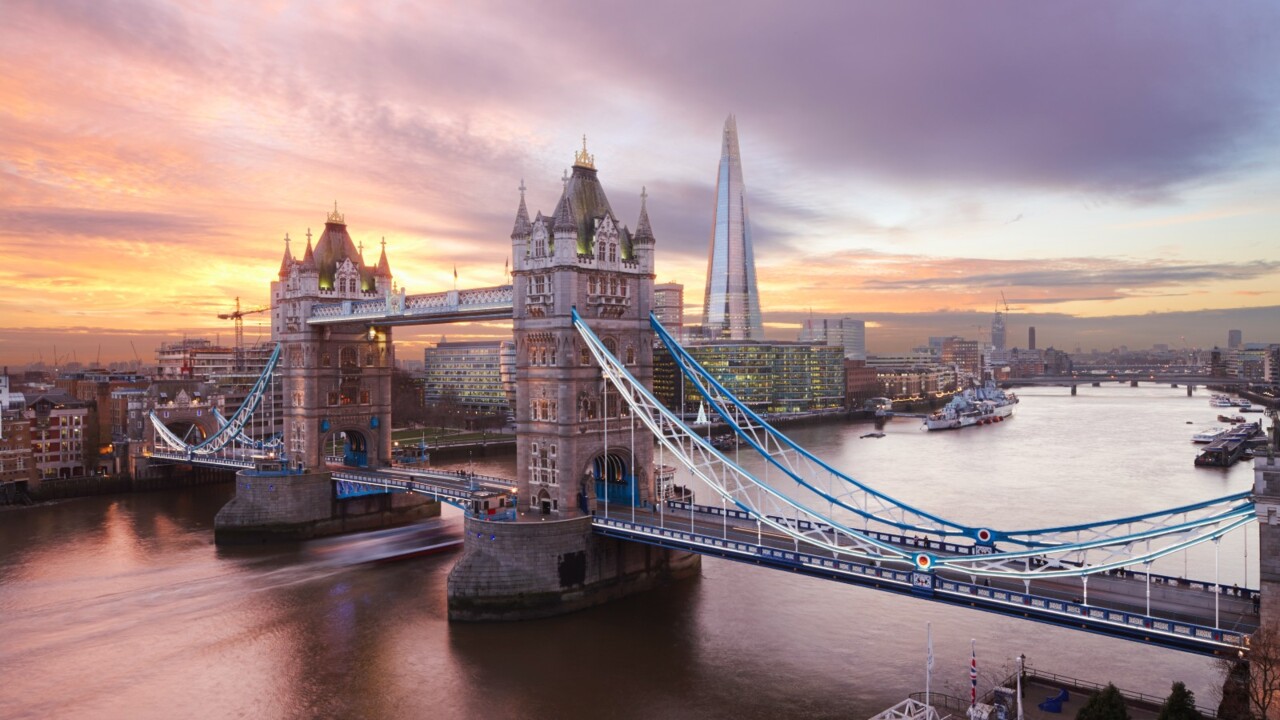
Genius way stranded men created ‘help’ sign
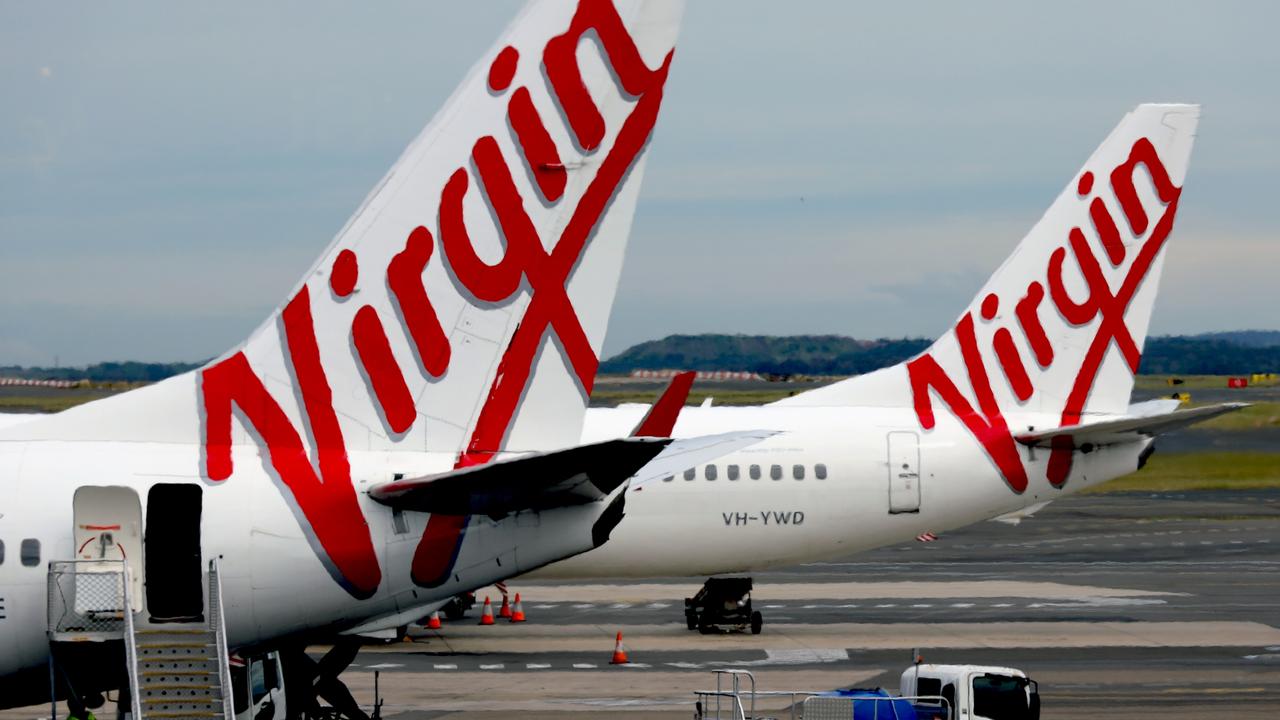
‘Fills an important gap’: Virgin’s new move
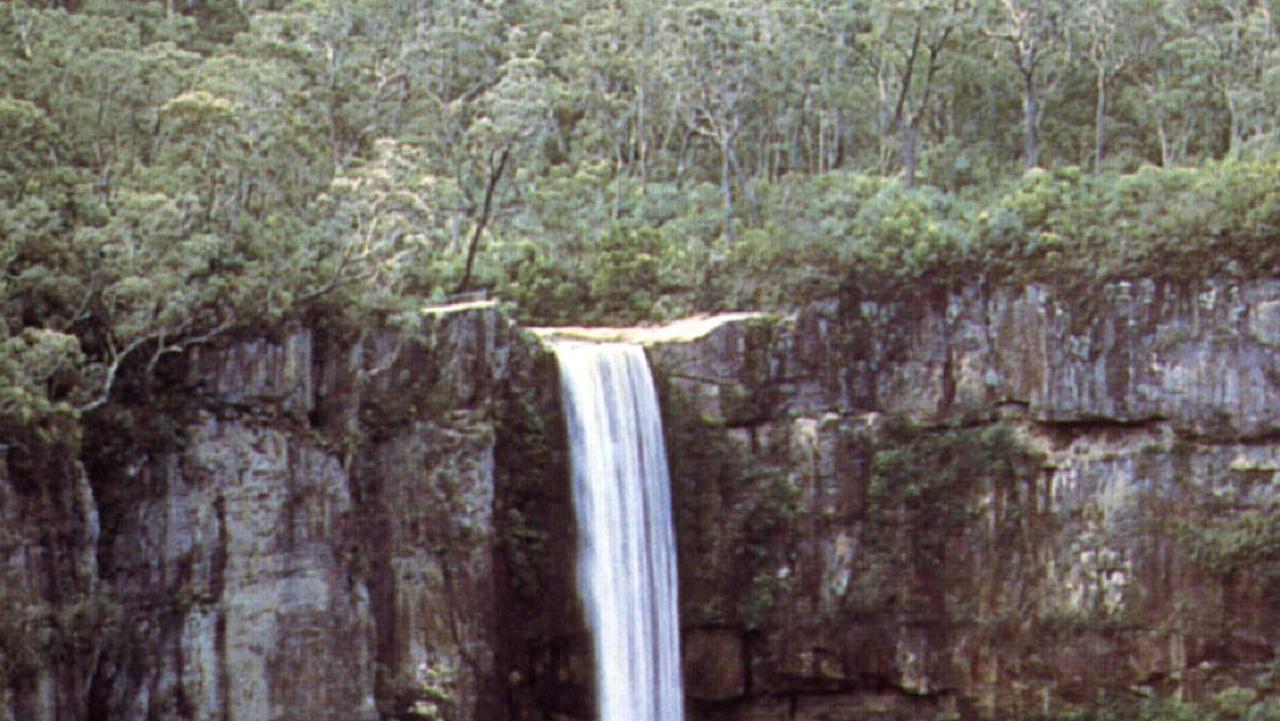
Tragic update in search for missing bushwalker
New Zealand has tightened its visa regulations in the face of “unsustainable” net migration levels in an effort to further protect jobs for its citizens.
The nation of 5.1 million has made immediate changes to is Accredited Employer Worker Visa, introducing new language and skill criteria for potential migrants and shortening the duration of work permits.
Minister of Immigration Erica Stanford announced the changes on Monday, emphasising the need to prioritise New Zealanders for employment, particularly in sectors where skill shortages do not exist.
This comes in the wake of 173,000 non-New Zealand citizens migrating to the country in 2023.
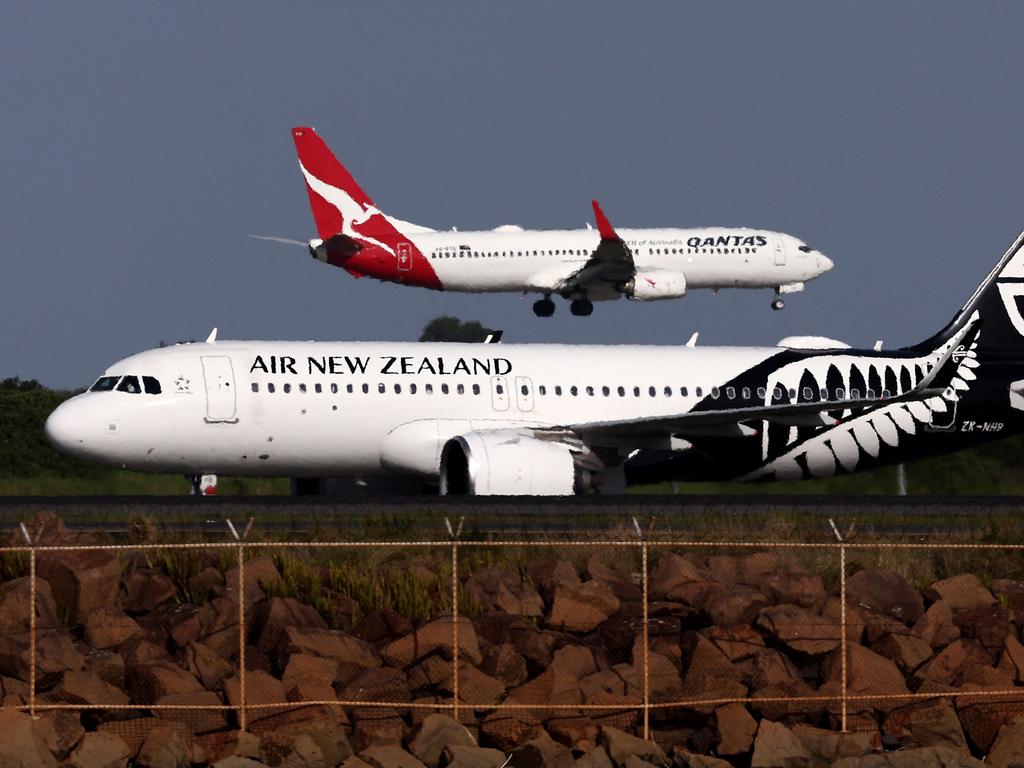
The government insists on prioritising employment for New Zealanders in fields without shortages.
Key modifications to the AEWV scheme include the introduction of a minimum English language proficiency requirement, a new minimum skill requirement that can be met through relevant work experience or qualifications, and a reduction in the maximum continuous duration of an AEWV from previously longer periods to now just three years.
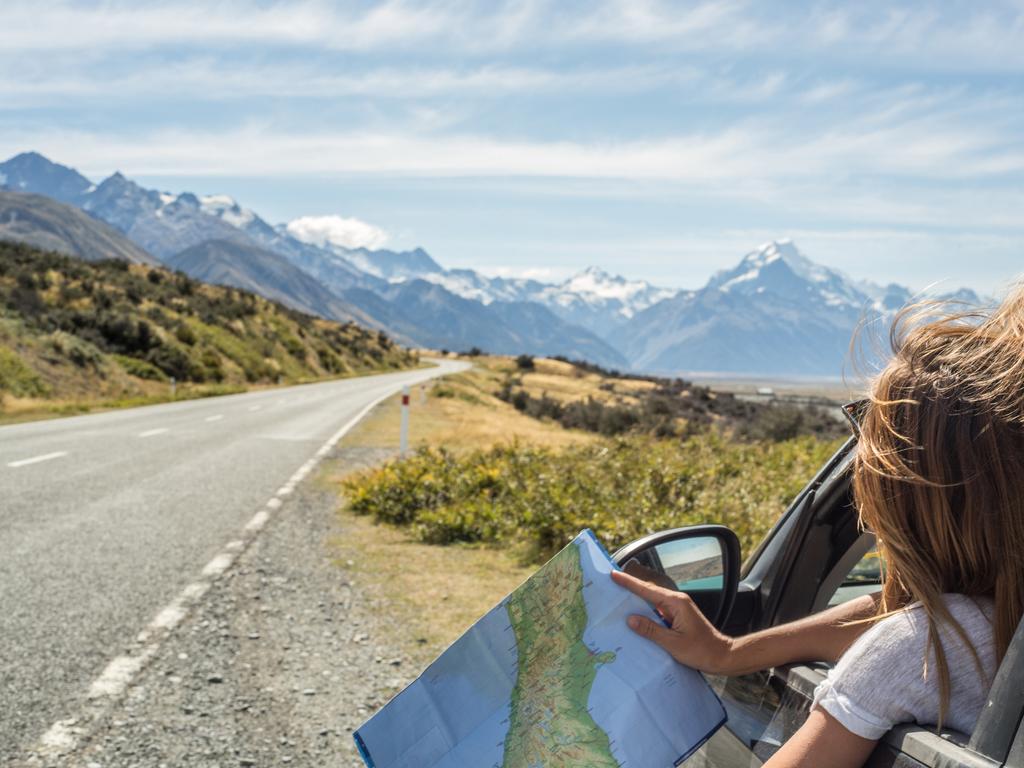
Employers are mandated to ensure that migrants meet these new requirements before hiring. This includes declaring that no suitable and available New Zealand citizen applied for the position and justifying why any local applicants were not selected.
Additionally, employers are required to advertise job vacancies for a minimum of 21 days to give New Zealanders ample opportunity to apply.
Certain job roles, particularly in the transport and care sectors, will be exempt from some of these new requirements, acknowledging the unique demands and shortages in these areas.
The change comes after Australia implemented changes in 2023 for New Zealanders moving across the ditch to Australia.
Under the new legislation, all Special Category Visa holders will be able to directly apply for citizenship without becoming permanent residents first – provided they meet four-year residence and other eligibility requirements.
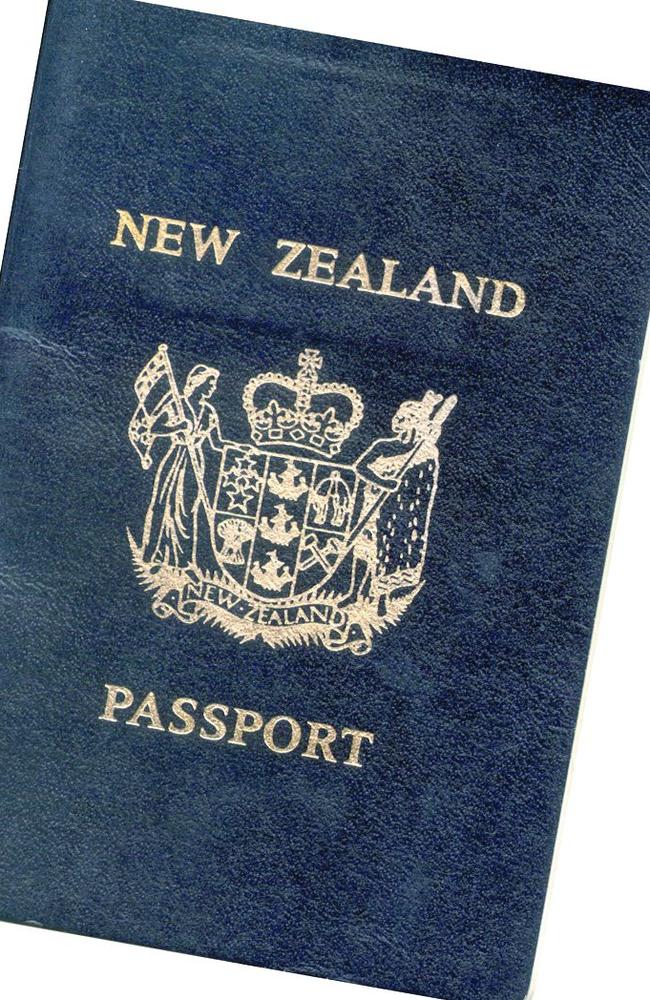
The changes will bring Australia’s treatment of New Zealanders in line with New Zealand’s treatment of Australians.
Prime Minister Anthony Albanese said the change would further strengthen the long friendship between the two countries.
“Australia and New Zealand have a deep friendship, which has been forged through our history, shared values, and common outlook,” he said.
“As we mark the 50th anniversary of the trans-Tasman Travel Arrangement, I look forward to strengthening our relationship.
“We know that many New Zealanders are here on a Special Category Visa while raising families, working and building their lives in Australia. So I am proud to offer the benefits that citizenship provides.”
Three stranded men have been rescued from a tiny Pacific island after crafting a “crucial” message on the sand.
Just days after Qantas announced a major shakeup to the Frequent Flyer program, rival airline Virgin Australia has a new change for members.
A 20-year-old woman was reported missing after she reportedly fell down a cliff while bushwalking.
Watch CBS News
New Zealand tightens visa rules as immigration minister says "unsustainable numbers coming into the country"
By Lucia Suarez Sang
April 8, 2024 / 11:26 AM EDT / CBS News
New Zealand will tighten its visa rules for some migrants in a bid to reduce overall immigration numbers, as the island country's has in recent years have seen "unsustainable" levels of migration, according to Immigration Minister Erica Standford.
Stanford announced changes on Sunday to the Accredited Employer Work Visa (AEWV) program, the country's primary temporary work visa program, which she said would ensure that New Zealand can still attract the skilled workers it needs while also reducing the vulnerability of migrants to exploitation.
The AEWV was introduced in mid-2022 to help fill workforce shortages in the wake of the COVID-19 pandemic .
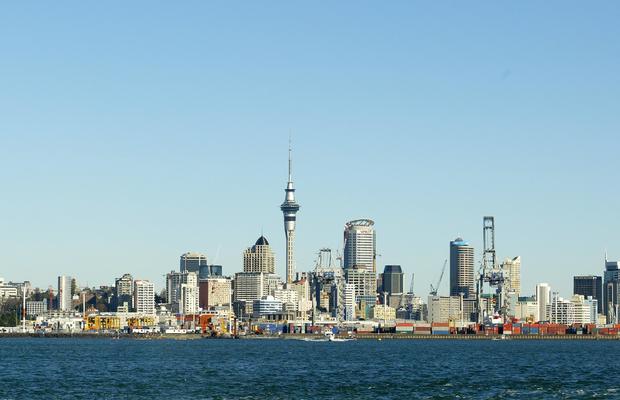
In 2023, however, migration swelled to a near record of 173,000 new non-New Zealand citizens taking up residence. At the same time, New Zealanders have been moving out of the country. Last year, the country saw a record loss of 47,000 citizens.
"Getting our immigration settings right is critical to this government's plan to rebuild the economy," Stanford said, adding that while there were still skill shortages in some areas, the government had to "ensure that New Zealanders are put to the front of the line for jobs where there are no skill shortages."
"We had to make some changes now because we've got high migrant exploitation and unsustainable numbers coming into the country," Stanford said according to state broadcaster Radio New Zealand . "So there are some things that we needed to do immediately."
Changes to the visa program include the introduction of English language requirements for low-skilled jobs and setting a minimum skills and work experience threshold for most employer work visas. The maximum continuous stay for most low-skilled roles has also been reduced from five years to three years.
Officials also decided to axe earlier plans to add 11 roles, including welders, fitters and turners, to the list of occupations that would qualify for a fast track to residency.
Employers will need to ensure that migrants meet the requirements before hiring them, and they're required to ensure that no "suitable and available New Zealander" applied for the job before it was offered to a non-New Zealander.
Stanford said many of the changes were not actually new, but rather a "return to pre-pandemic settings that better balanced the needs of businesses with the wider interests of New Zealand."
Some roles in the transport and care sectors will be exempt from the requirements.
- Immigration
- New Zealand
Lucia Suarez Sang is an associate managing editor at cbsnews.com. Previously, Lucia was the director of digital content at FOX61 News in Connecticut and has previously written for outlets including FoxNews.com, Fox News Latino and the Rutland Herald.
More from CBS News

New WIC rules include more money for fruits and vegetables

Iowa governor signs bill that allows for arrest of some migrants
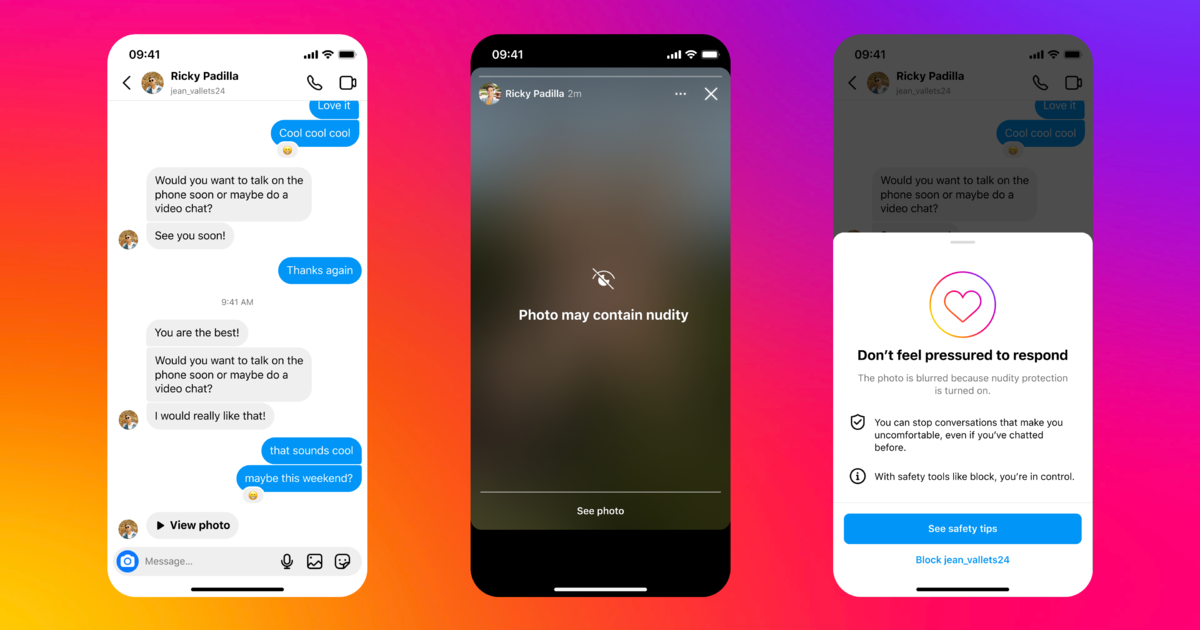
Meta tests new features on Instagram designed to fight teen sextortion
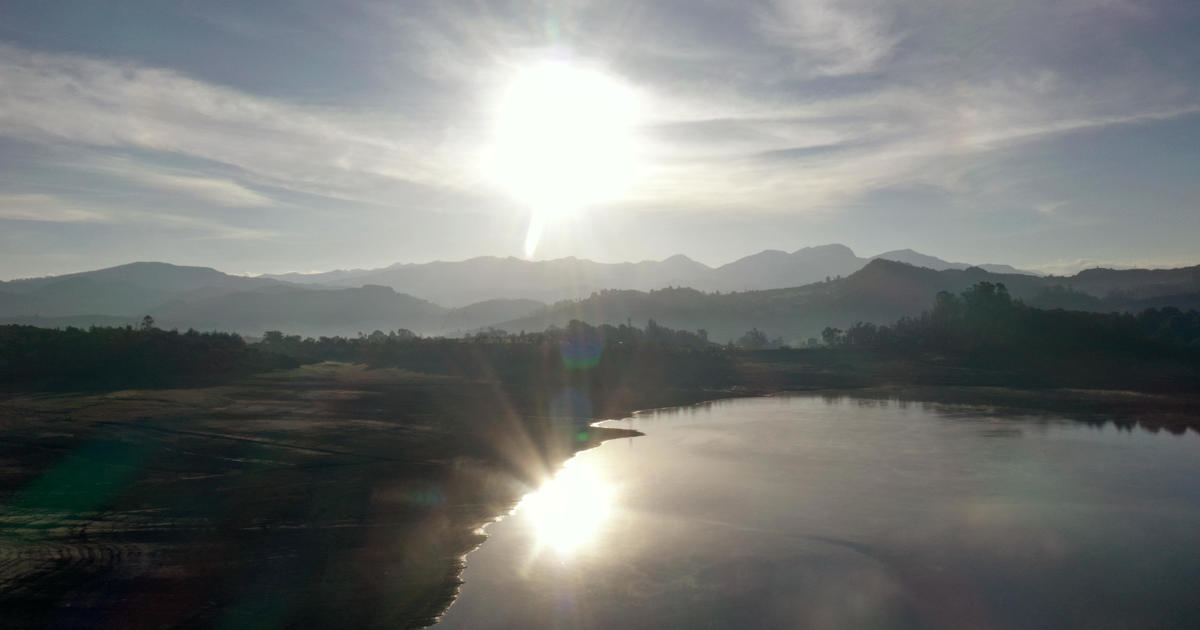
Colombia's capital rations water for millions as reservoirs run dry
New Zealand tightens visa rules amid near record migration
- Medium Text
The Reuters Daily Briefing newsletter provides all the news you need to start your day. Sign up here.
Reporting by Praveen Menon
Our Standards: The Thomson Reuters Trust Principles. New Tab , opens new tab

South Korea's job growth slowed to its lowest in more than three years in March, with the unemployment rate rising, official data showed on Friday.

World Chevron
New zealand aims to boost u.s. ties amid global instability.
New Zealand is facing the most unstable global environment in decades, Foreign Minister Winston Peters said on Friday, as he pledged to boost ties with the United States amid conflicts in the Middle East and Ukraine.


IMAGES
COMMENTS
Antigen tests. Travellers entering New Zealand do not need pre-departure tests or proof of COVID-19 vaccination to enter New Zealand. Check with your travel provider as they may still require proof of vaccination. If you have COVID-19 symptoms when you arrive in New Zealand, it is recommended to take a rapid antigen test (RATs).
Travel during daylight hours only, especially in rural areas. If you choose to drive a vehicle in New Zealand, learn the local traffic laws and have the proper paperwork. Get any driving permits and insurance you may need. Get an International Driving Permit (IDP). Carry the IDP and a US-issued driver's license at all times.
Valid passport. You must have a valid passport to enter New Zealand. Check its expiry date to make sure it meets the rules for acceptable travel documents. If you are a New Zealand citizen and you need to renew your passport, make sure you allow plenty of time before you travel. Renew or replace your adult passport - Te Kāwanatanga o ...
Quick Facts. Three months beyond the planned date of departure from New Zealand. One page required for entry stamp. New Zealand Electronic Travel Authority (NZeTA) or visa is required. None. Border Cash Report required for New Zealand Dollars (NZD) $10,000 or more in cash or foreign equivalent. None.
COVID-19 and international travel. This COVID-19 travel advice applies to all international travel, in all destinations. If you are planning international travel at this time, please read this advice alongside our destination specific travel advisories.. In line with step two of the Government's 5-step plan to re-open New Zealand's borders, at 11:59pm on Friday 4 th of March 2022, we ...
New Zealand entry details and exceptions. The border is open to travelers from anywhere in the world. Proof of COVID-19 vaccination and filling out the travel declaration are no longer required.
Everyone entering New Zealand needs to submit a declaration. You can do it on the online form or the NZTD app, using your phone or computer. For air travellers, the earliest you can submit your declaration is 24 hours before you start your trip to New Zealand. It needs to be submitted by the time you reach passport control in New Zealand.
The New Zealand Government announced that from 11:59 pm on May 1, 2022, vaccinated visitors from visa waiver countries, and visitors from other countries who already hold a valid visitor visa can enter New Zealand and test on arrival. ... Message for U.S. Citizens: Traveller Pass for Travel to New Zealand. The New Zealand Government announced ...
COVID-19 information hub. COVID-19 has changed the way we travel and there are extra steps you need to take before you fly. Here's the information you need to prepare for your travel. Last updated 22 August 2023, 4:37pm.
Kiwis will be excited to be able to travel again after the New Zealand Government announced the next steps to reconnect New Zealanders to the world. This includes removal of the need for vaccinated New Zealanders to self-isolate on return from any country, and dropping the Ministry of Foreign Affairs and Trade's global "do not travel ...
Get visa information from Immigration New Zealand Get biosecurity information from Ministry for Primary Industries. If you're planning a trip to New Zealand - or if you're a New Zealander returning home - there are a number of things you should know first. In line with Customs Assurance, there may be times when a traveller may be selected for ...
Before you travel to New Zealand . Before you travel to New Zealand by air you must: Check your passport is valid. Check its expiry date to make sure it meets the rules for acceptable travel documents. ... any instrument prescribed by regulations under the Anti-Money Laundering and Countering Financing of Terrorism Act 2009.
The basics New Zealand was a poster child early on for how to deal with Covid-19. Its early lockdown and strict border measures meant it suppressed the virus to an astonishing degree. Its zero ...
Unpaid fines. If you have unpaid fines and try to leave or come into New Zealand, the police can stop you at the airport. You will be allowed to pay by credit card over the phone with a registrar. If you're travelling in the next 48 hours and you have fines or reparation you have not paid, call 0800 729 677 to pay with your credit card.
Exercise normal precautions in New Zealand. Read the country information page for additional information on travel to New Zealand. If you decide to travel to New Zealand: Enroll in the Smart Traveler Enrollment Program (STEP) to receive Alerts and make it easier to locate you in an emergency. Follow the Department of State on Facebook and Twitter
Find out more about our travel advisories. Travel advisory risk levels. Search for travel advisories by risk level. Before you go. COVID-19; Quick checklist and tips; Disability information; ... New Zealand embassy locator; Ministry of Foreign Affairs and Trade 195 Lambton Quay Private Bag 18 901 Wellington 5045 New Zealand. New Zealand Foreign ...
Still current at: 3 April 2024. Updated: 3 October 2023. Latest update: This travel advice has been rewritten to make it easier to read and understand. This travel advice page covers New Zealand ...
The digital arrival declaration can be completed within 24 hours of starting your trip to New Zealand. Do your declaration online or on the app — using your mobile phone or computer. New Zealand Traveller Declaration — digital declaration. The paper Passenger Arrival Cards will still be available for travellers who cannot complete it online ...
All of New Zealand's coastline is at risk of a tsunami. Know the tsunami warning signs and move to high ground immediately. Don't wait for official alerts. New Zealand has several active volcanoes. Volcanic alert levels may rise quickly. You may be ordered to evacuate at short notice.
The Bay of Islands has 144 subtropical islands, and there are many ways to explore them, be it by chartering a yacht, going on a scheduled group boat tour, hiring a kayak, or embarking of a ...
Travel Medicine Clinical Guidelines Australia and New Zealand. This website is intended to provide information to Australian and New Zealand healthcare professionals seeking travel medicine guidelines. If you are not a healthcare professional, please seek advice from a travel medicine healthcare provider in your area.
New Zealand announced it has tightened its visa rules, introducing language and skill criteria and shortening work permit lengths in response to "unsustainable net migration." The changes to ...
Net migration to New Zealand hit a near record high in 2023 after a new temporary work visa was introduced after the pandemic Eva Corlett in Wellington and agencies Mon 8 Apr 2024 01.58 EDT Last ...
New Zealand has tightened its visa regulations in the face of "unsustainable" net migration levels in an effort to further protect jobs for its citizens. 2 min read April 9, 2024 - 5:15AM
New Zealand will tighten its visa rules for some migrants in a bid to reduce overall immigration numbers, as the island country's has in recent years have seen "unsustainable" levels of migration ...
New Zealand, which has a population of about 5.1 million, has seen a rapid growth in its migrant numbers since the end of the pandemic, raising concerns last year that it was fanning inflation.